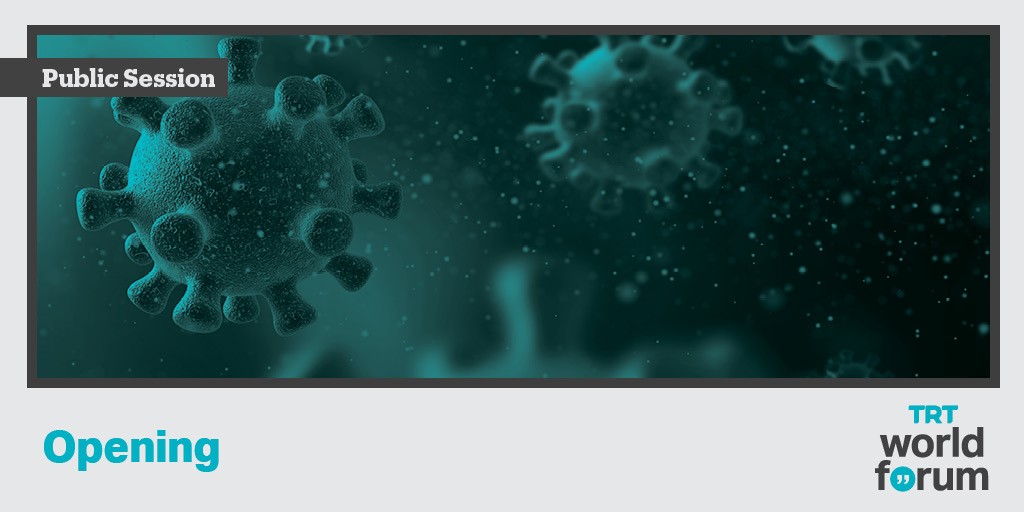All Publications
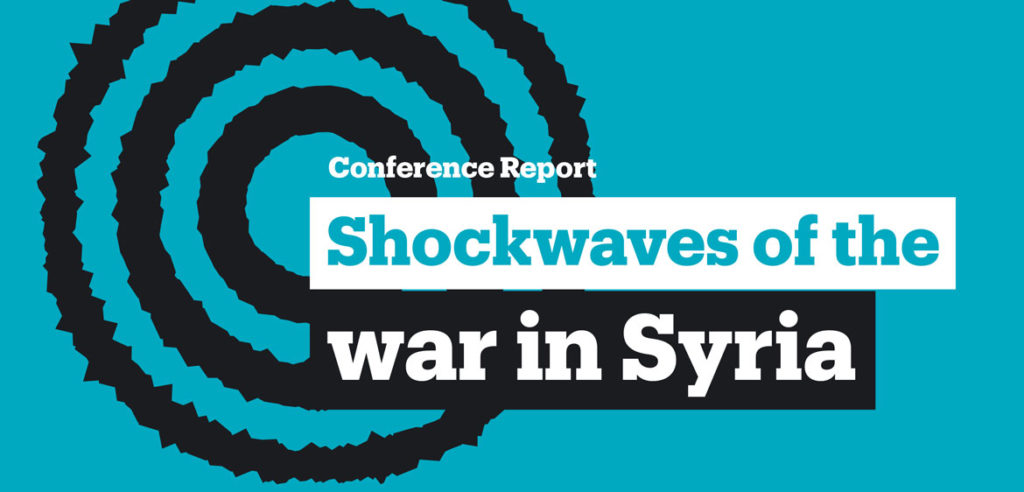
Shockwaves of the War in Syria
The Syrian issue has come to be one of the hottest topics of the global agenda regarding the Middle East. This is further complicated by the involvement and intervention of both regional and major global powers. In the closed session of TRT World Forum titled “Shockwaves of the War in Syria”, Turkish, Syrian, Iranian, and
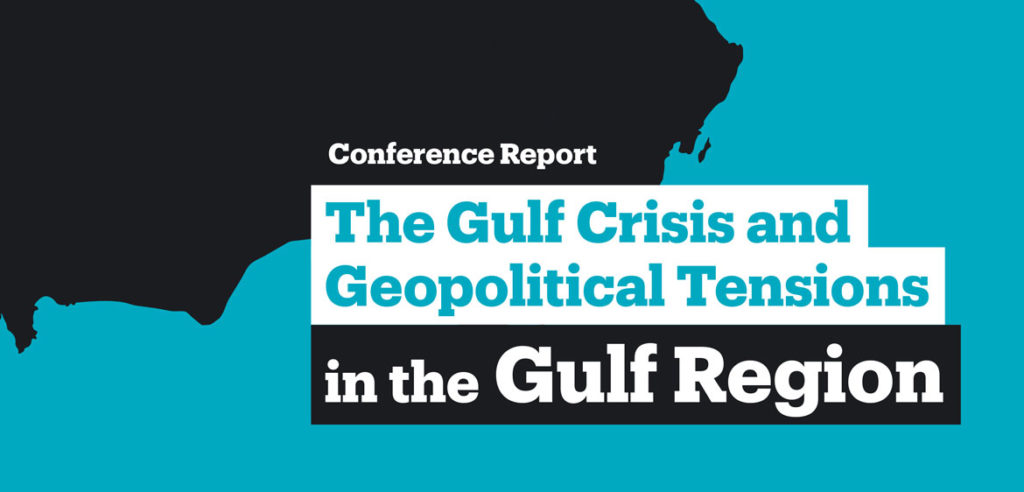
The Gulf Crisis and Geopolitical Tensions in the Gulf Region
On Monday, 5 June 2017, three GCC countries (Saudi Arabia, UAE Bahrain) and Egypt cut their diplomatic relationships with Doha. This unprecedented crisis in the history of inter-Gulf relations has created a state of mistrust, not only among the governments of the Gulf States, but also among the citizens of those countries. This session discussed
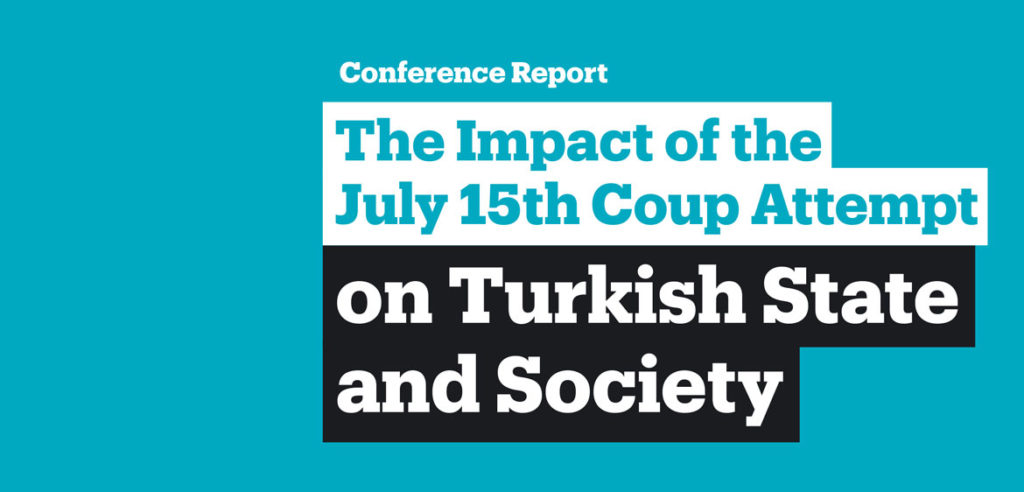
The Impact of the July 15 Coup Attempt on Turkish State and Society
In this session, a distinguished panel of speakers and participants convened to explore the origins, impact and lasting legacy of the brutal coup attempt in Turkey, in which many innocent civilians lost their lives and thousands were injured. During the night of July 15, 2016, a group of soldiers attempted to overthrow the democratically elected
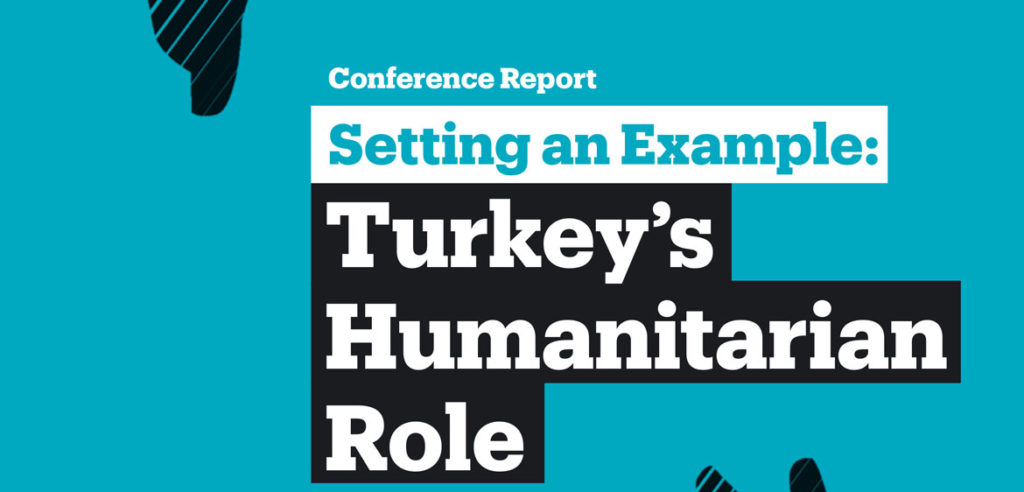
Setting an Example: Turkey’s Humanitarian Role
This session mainly discussed Turkey’s current position as a leading humanitarian actor in the international arena. Turkey, as a rising power, has been playing a crucial role in the humanitarian field in the last 15 years, presenting new strategies for humanitarian activism around the world. In 2017, the Global Humanitarian Assistance Report ranked Turkey as
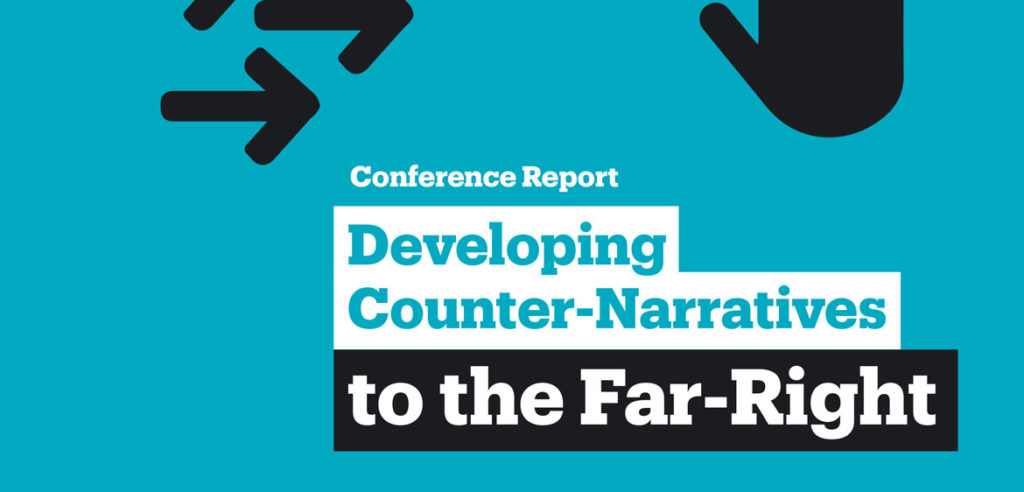
Developing Counter-Narratives to the Far-Right
This session focused on far-right movements, parties and their effects on politics and social life. It was emphasized that far-right political parties are increasingly supported more in the West, especially in European countries due to fluctuations in the economy and the increase in unemployment. Another important factor in the rise of the far-right movements is
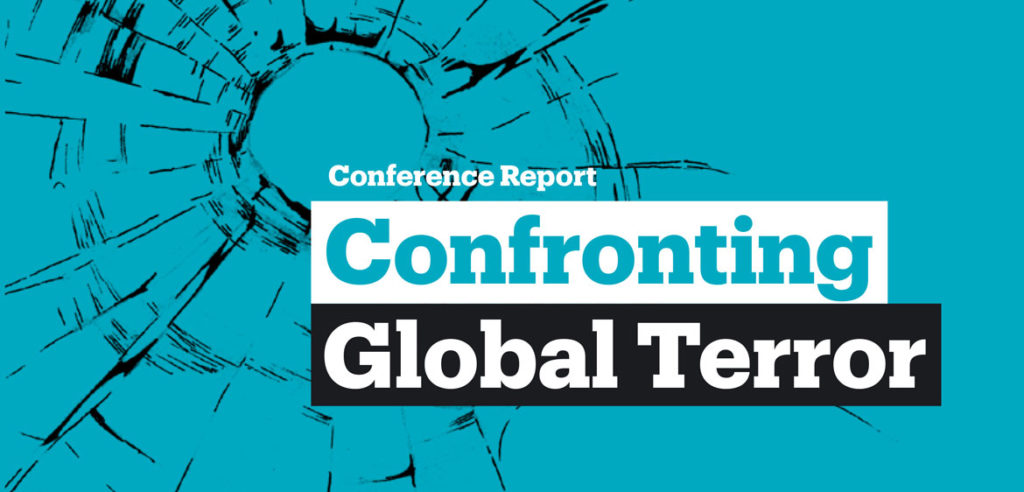
Confronting Global Terror
This session primarily dealt with the question of how to develop a comprehensive strategy to counter global terrorism. The rise of global terrorism has created an atmosphere of fear across the globe affecting many countries in different continents. With advances in communication and transportation technology due to the processes of globalisation, local groups now have
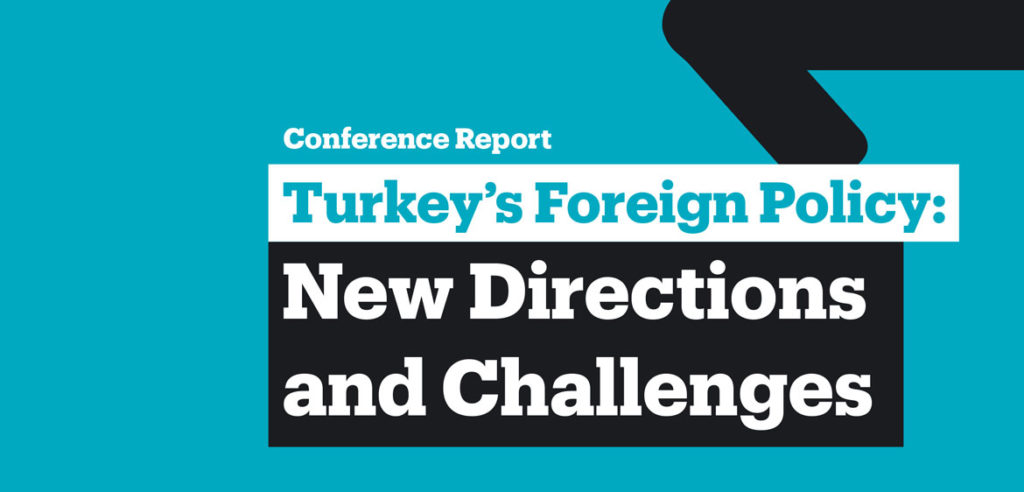
Turkey’s Foreign Policy: New Directions and Challenges
The closed session, ‘Turkey’s Foreign Policy: New Directions and Challenges’ was held on October 18, 2017 with the participation of highly esteemed politicians, academics and policy experts from all over the globe. The session primarily dealt with the general landscape and contours of Turkey’s foreign policy, its main pillars and its changing dynamics. After presentations
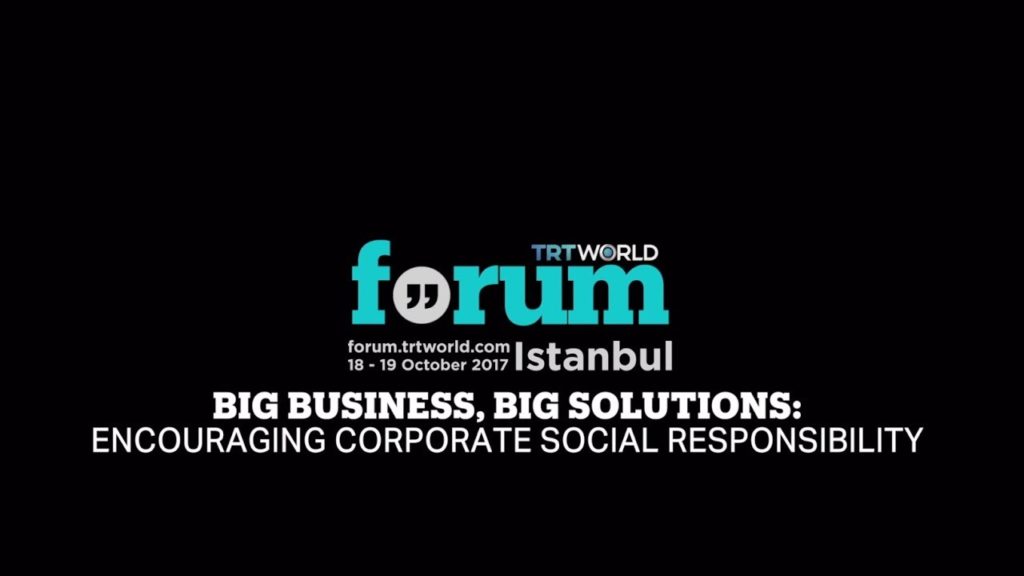
Big Business For Big Solutions: Encouraging Corporate Social Responsibility
This session discussed the role that big businesses and entrepreneurs play in effecting social development and change. Considering that the international community is failing to react quickly and effectively to the emerging problems of third world countries, this responsibility falls on the shoulders of big businesses. As opposed to traditional approaches, big businesses and organisations
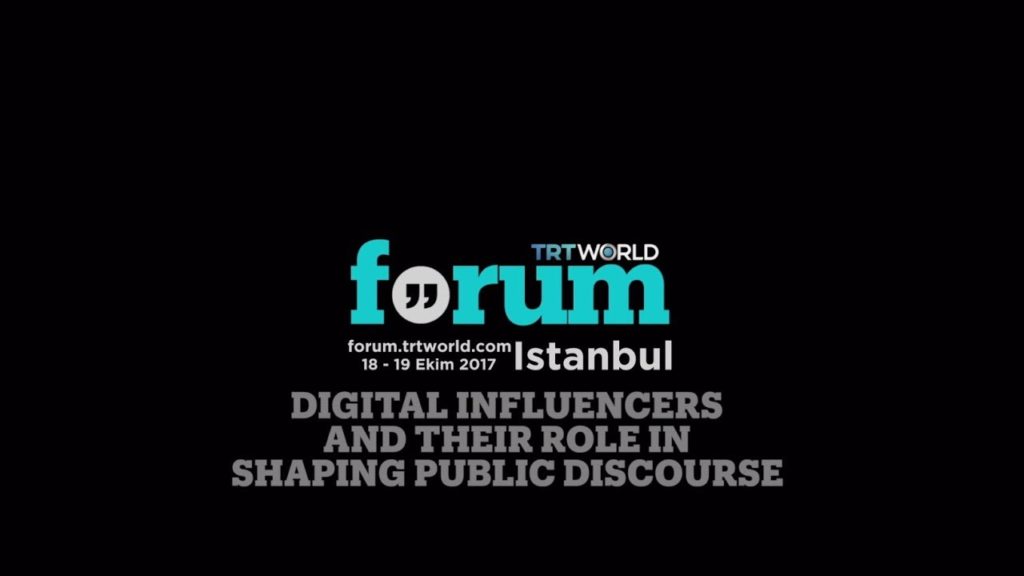
Digital Influencers and Their Role in Shaping Public Discourse
As digital media on mobile devices is the primary platform of communication with the outside world, the rise of digital influencers continues to grow. Community leaders and celebrities have been replaced by individuals who gain popularity on social media. The popularity of influencers on YouTube highlights how young people who create content on digital platforms
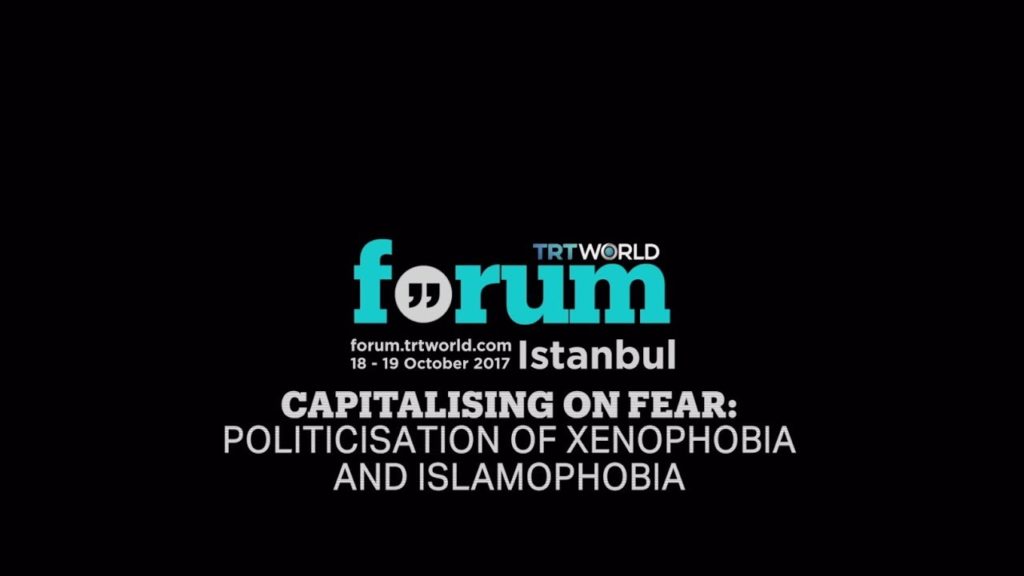
Capitalizing on Fear: The Politicization of Xenophobia and Islamophobia
This session discussed the current upsurge of xenophobia and Islamophobia in Europe and North America. Both problematic discourses operate at various levels of intensity, from outright anti-Muslim and anti-immigrant political campaigns to depict any disadvantaged or marginalised segment of society – including women, as the ‘other’ through film, media or numerous educational platforms. The potency
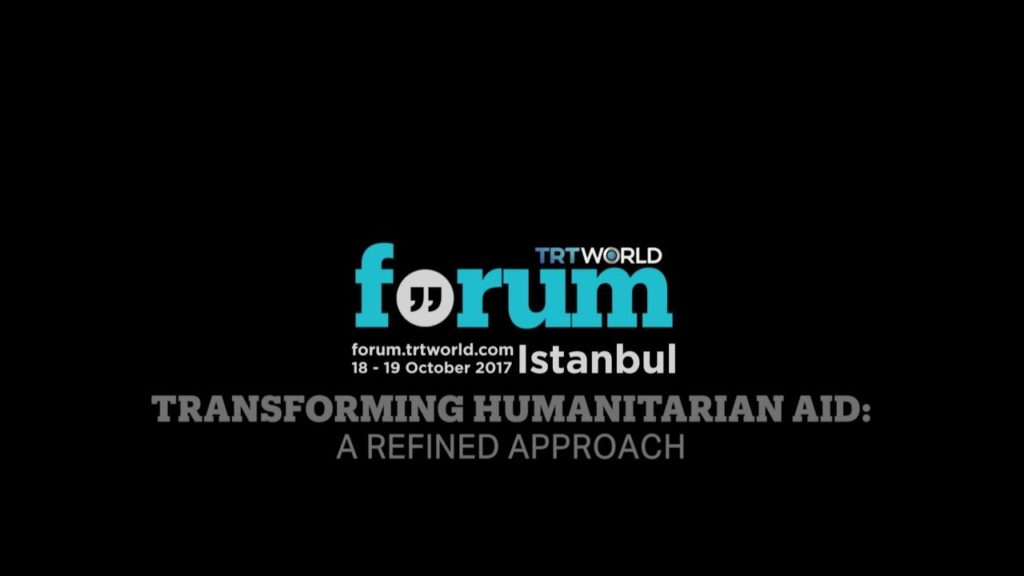
Transforming Humanitarian Aid: A Refined Approach
This session dealt with transforming the conventional humanitarian aid system towards a more refined assistance approach. It kicked off with two fundamental questions posted to the panellists: 1) Why is humanitarian aid necessary? 2) Where does it go and who decides where it goes? The session involved serious debate on the most effective ways to
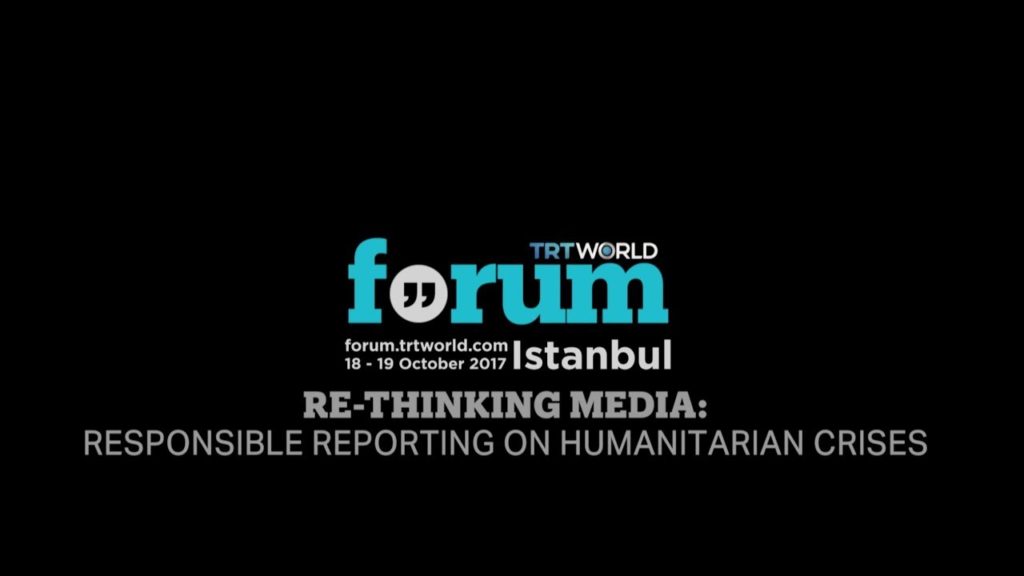
Re-thinking Media: Responsible Reporting on Humanitarian Crises
The session discussed ‘responsible journalism’ and how the term ‘objectivity’ needs to be rephrased in relation to reporting on war zones. Secondly, panellists discussed the role and impact of emerging new technology in giving a voice to the voiceless. With the advent of social media, ordinary people can now broadcast what is happening on their
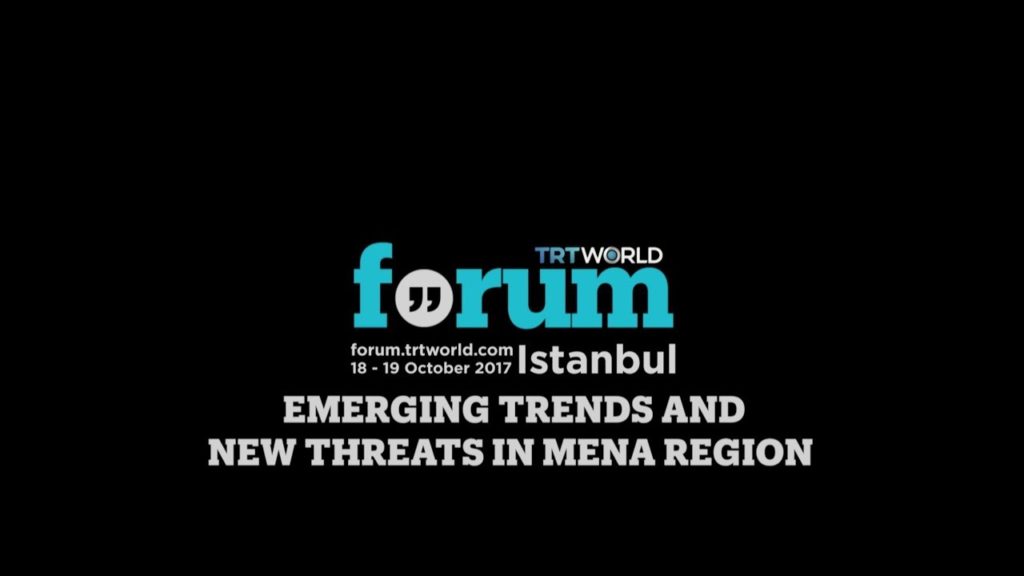
Emerging Trends and New Threats in MENA Region
This session delved into topics most pertaining to the Middle East today and which have affected the course of events regionally and globally over the past six years. The panelist explored both theoretical and practical aspects of the threats and trends the MENA region is passing through at the present time. Middle Eastern states will
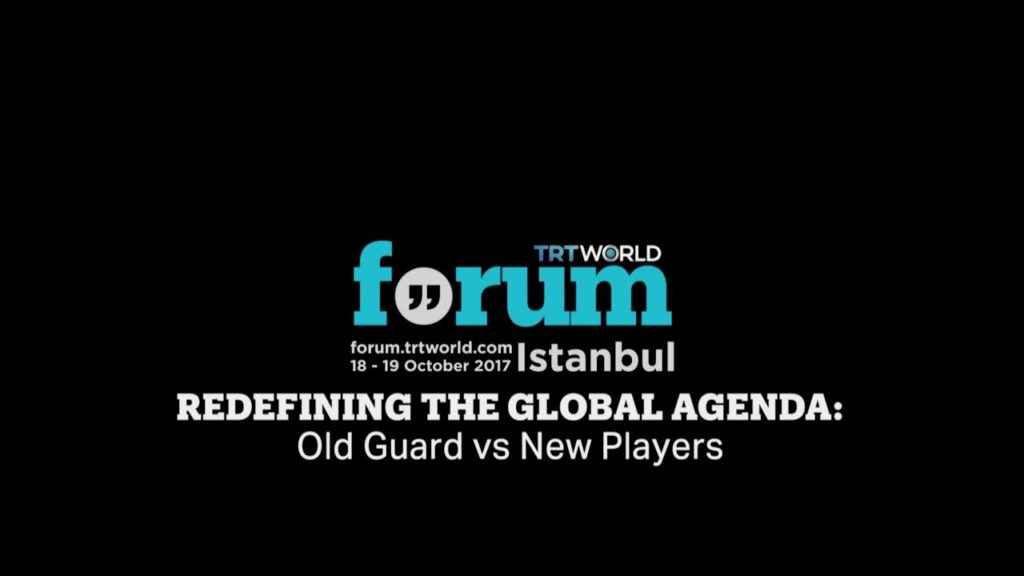
Redefining the Global Agenda: Old Guard versus New Players
This session discussed issues surrounding the established current world order and explored the players in the international arena that have the potential to change and shift the power equilibria. One of the first questions of debate was on defining the established global order to explore the subject more appropriately on a common ground. Participants discussed
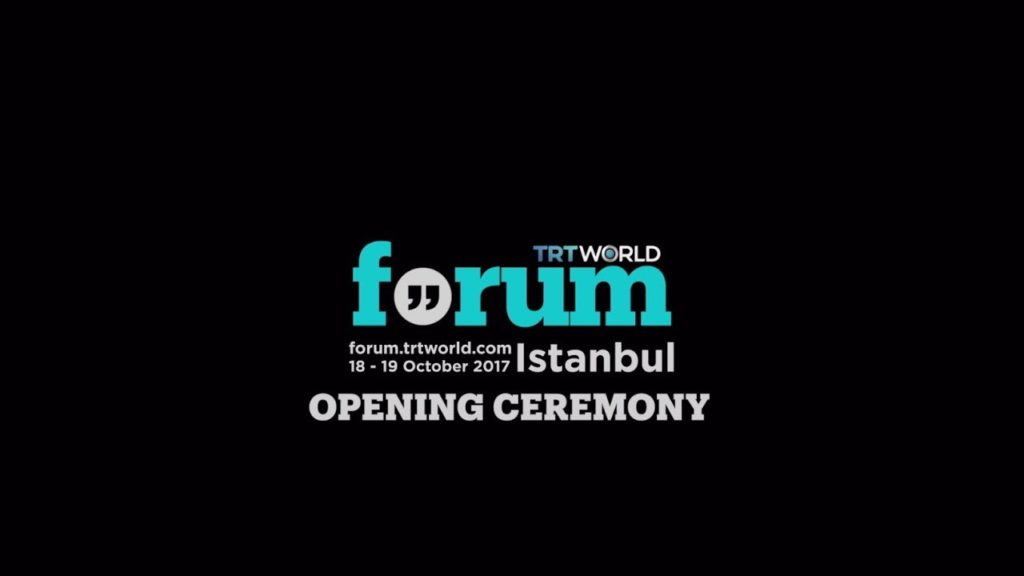
Opening Ceremony: Inspiring Change in an Age of Uncertainty
Unceasing demands for change and potential threats today challenge the contours of the global political agenda and inevitably urge numerous actors to come up with a vision for change. By bringing together politicians, academics, diplomats and NGO leaders of all backgrounds, discussions varied from the redefinition of the global agenda to the politicisation of xenophobia
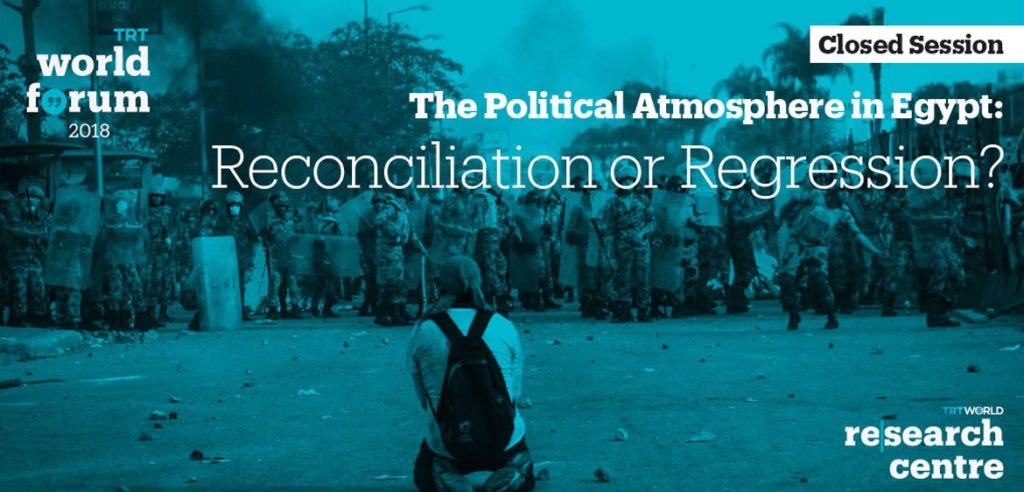
The Political Atmosphere in Egypt: Reconciliation or Regression?
On October 4, 2018 TRT World Research Centre held a roundtable meeting on ‘The Political Atmosphere in Egypt: Reconciliation or Regression?’ This was part of a series of roundtable meetings forming part of the two-day TRT World Forum 2018. Once perceived as one of the icons of the Arab Spring, Egypt has come to symbolise
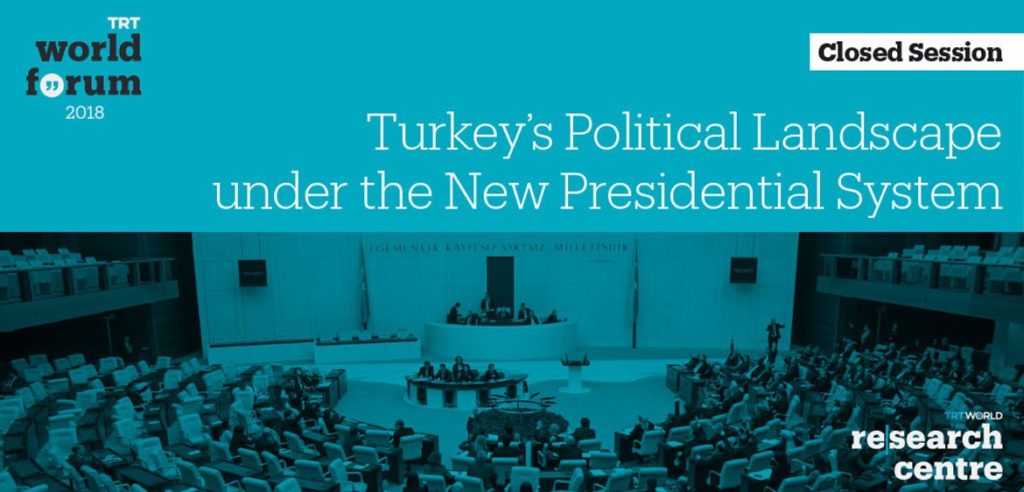
Turkey’s Political Landscape under the New Presidential System
On October 4, 2018 TRT World Research Centre held a roundtable meeting titled “Turkey’s Political Landscape under the New Presidential System”. This was part of a series of roundtable meetings in the two-day TRT World Forum 2018, which included eight public sessions and 11 closed sessions. This roundtable meeting was held in English under the
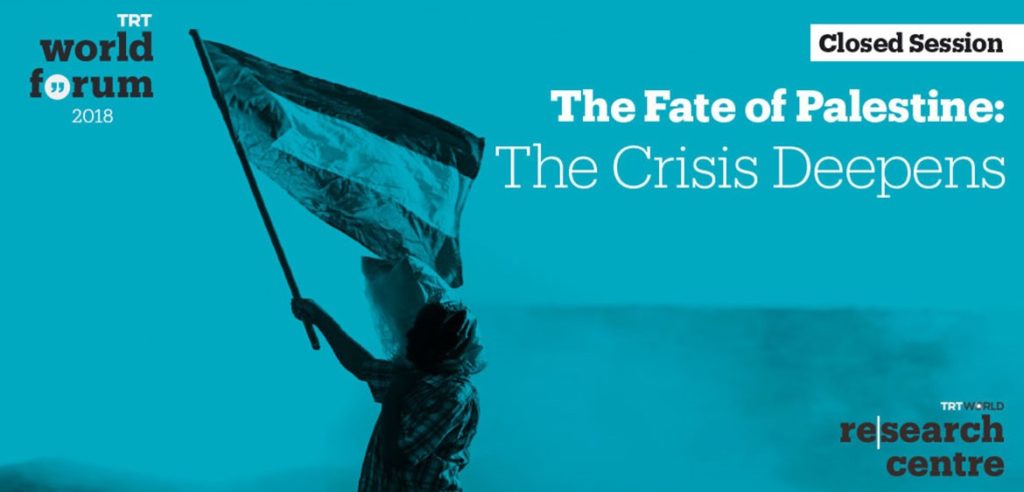
The Fate of Palestine: The Crisis Deepens
On October 4, 2018, TRT World Research Centre held a roundtable meeting on the developments taking place in Palestine. This was part of a series of roundtable meetings forming part of the two-day TRT World Forum 2018, which included eight public sessions and 11 closed sessions. This roundtable meeting was held in English under the
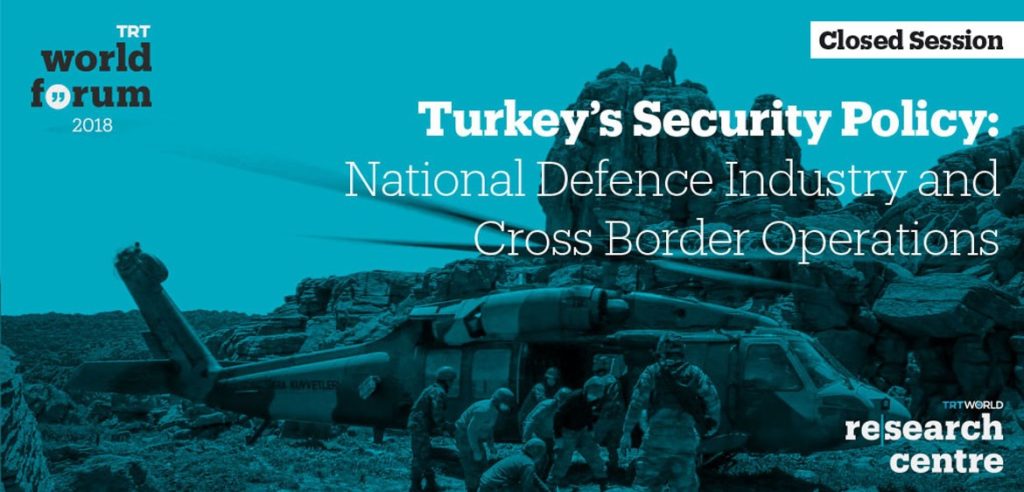
Turkey’s Security Policy: National Defence Industry and Cross Border Operations
On October 4 2018, the TRT World Research Centre held a roundtable meeting on Turkey’s Security Policy: National Defence Industry and Cross Border Operations. This was part of a series of roundtable meetings forming part of the two-day TRT World Forum 2018, which included eight public sessions and 11 closed sessions. Turkey’s security policy has
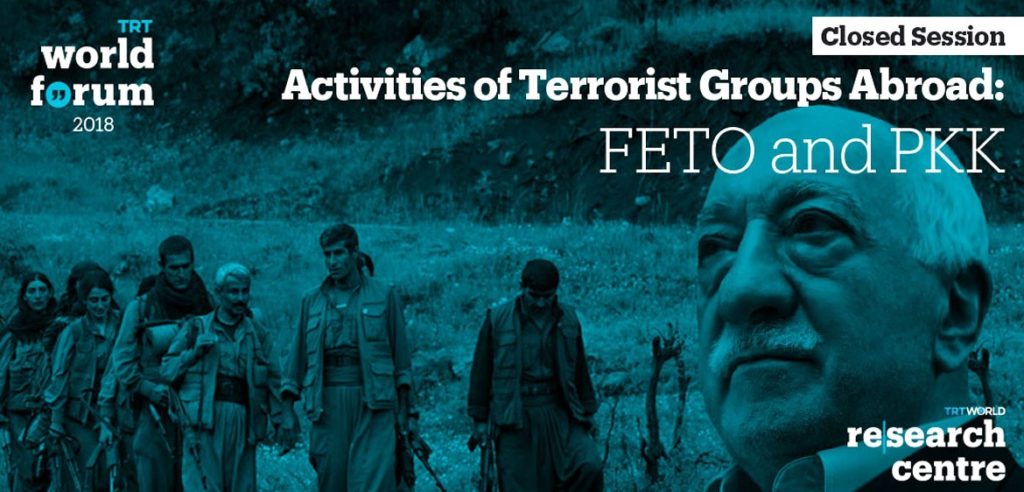
Activities of Terrorist Groups Abroad: FETO and PKK
On October 3, 2018, TRT World Research Centre held a roundtable meeting on the Activities of Terrorist Groups Abroad. This was one of a series of roundtable meetings forming part of the two-day TRT World Forum 2018, which included 8 public sessions and 11 closed sessions. The roundtable meetings were held in English under the
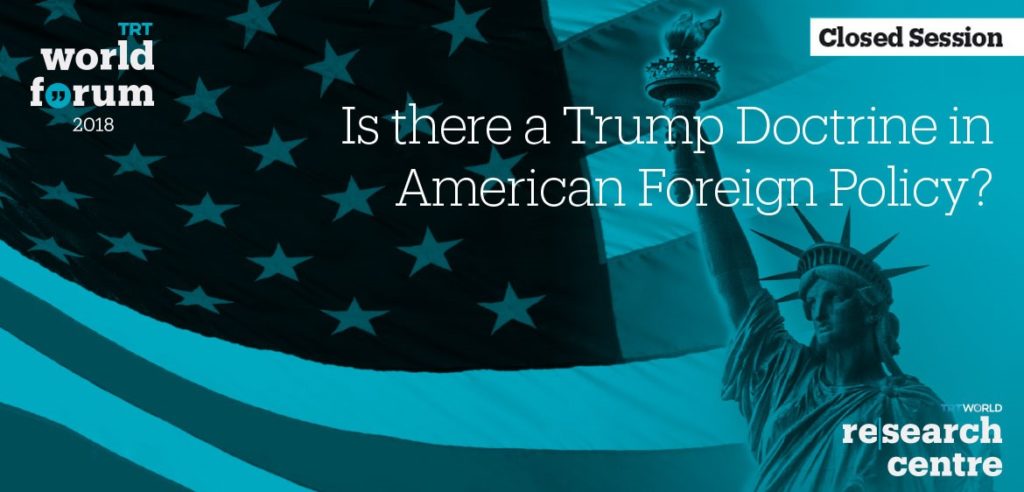
Is there a Trump Doctrine in American Foreign Policy?
On October 3, 2018, TRT World Research Centre held a roundtable meeting on U.S. foreign policy under the Trump administration. Even before President Trump took office, the question of how the new administration would approach U.S. foreign policy had become an issue of discussion. As Trump approaches two years in office, scholars, journalists and pundits
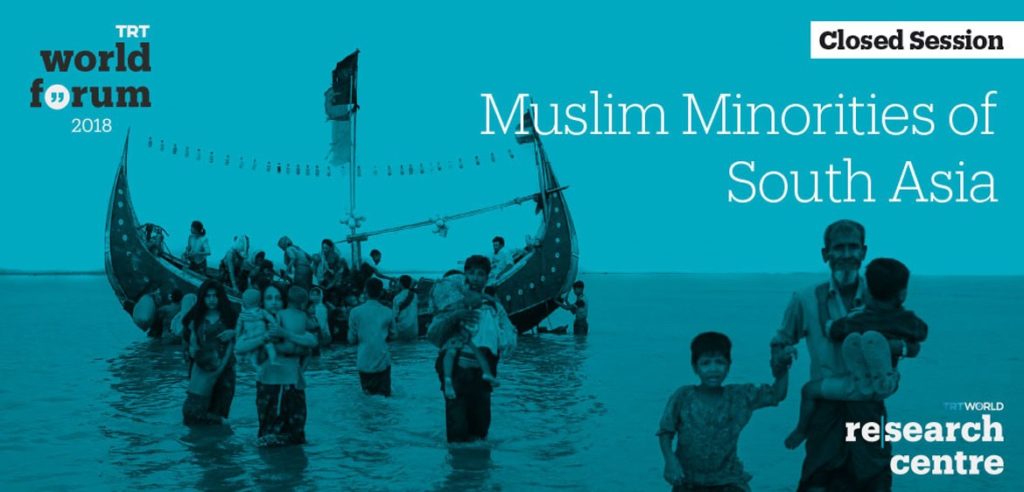
Muslim Minorities of South Asia
On October 4, 2018 TRT World Research Centre held a roundtable meeting on the “Muslim Minorities of South Asia.” This was part of a series of roundtable meetings forming part of the two-day TRT World Forum 2018, which included eight public sessions and 11 closed sessions. This closed session was held in English under the
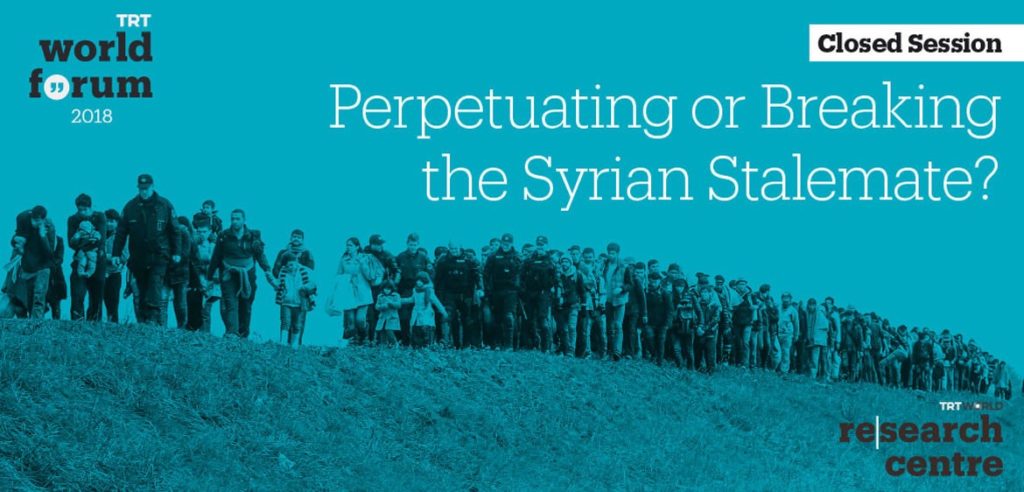
Perpetuating or Breaking the Syrian Stalemate?
On October 4, 2018, TRT World Research Centre held a roundtable meeting on the Syrian crisis entitled “Perpetuating or Breaking the Syrian Stalemate.” This was part of a series of roundtable meetings forming part of the two-day TRT World Forum 2018, which included eight public sessions and 11 closed sessions. This roundtable meeting was held
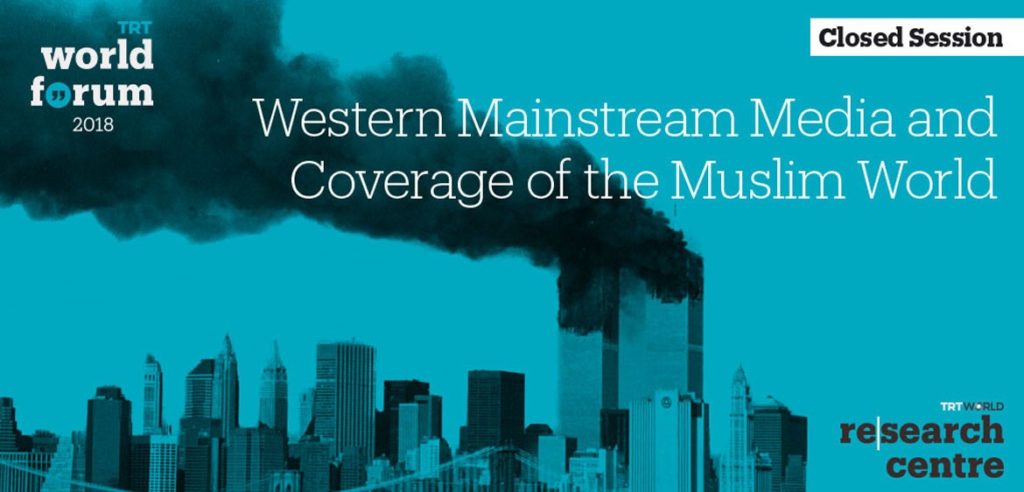
Western Mainstream Media and Coverage of the Muslim World
On October 4, 2018, TRT World Research Centre held a roundtable meeting on Western Mainstream Media and Coverage of the Muslim World. This was part of a series of roundtable meetings forming part of the two-day TRT World Forum 2018, which included eight public sessions and 11 closed sessions. This roundtable meeting was held in
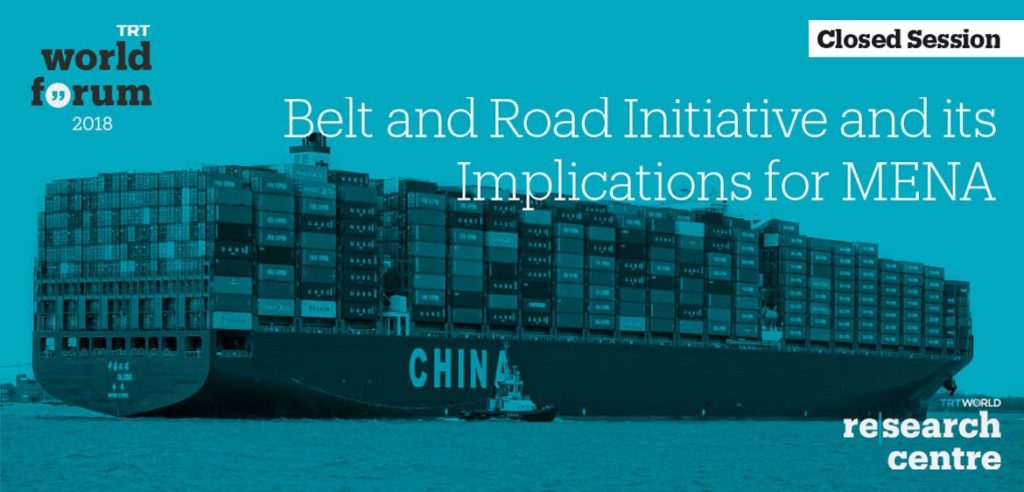
Belt and Road Initiative and its Implications for MENA
On October 3, 2018, TRT World Research Centre held a roundtable meeting on China’s Belt and Road Initiative (BRI). This session aimed to discuss the opportunities and challenges of China’s Belt and Road Initiative for the Middle East and North Africa (MENA). The BRI is a comprehensive connectivity and cooperation plan that spans three continents,
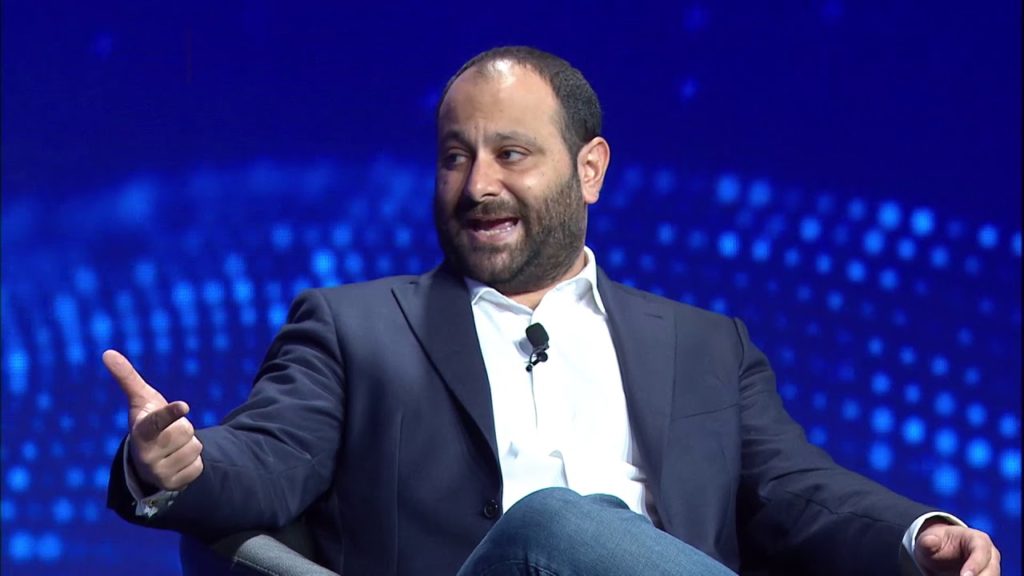
A Crisis of Connectivity: New Media and Trust-Formation
With increased digital transformation comes increased complexity and ambiguity. Users of new media technologies are now able to actively monitor and be a part of international events, aggregate and filter news and add their viewpoints to any given story’s narrative. As the world increasingly embraces digitisation, communication via digital platforms is increasingly raising questions regarding
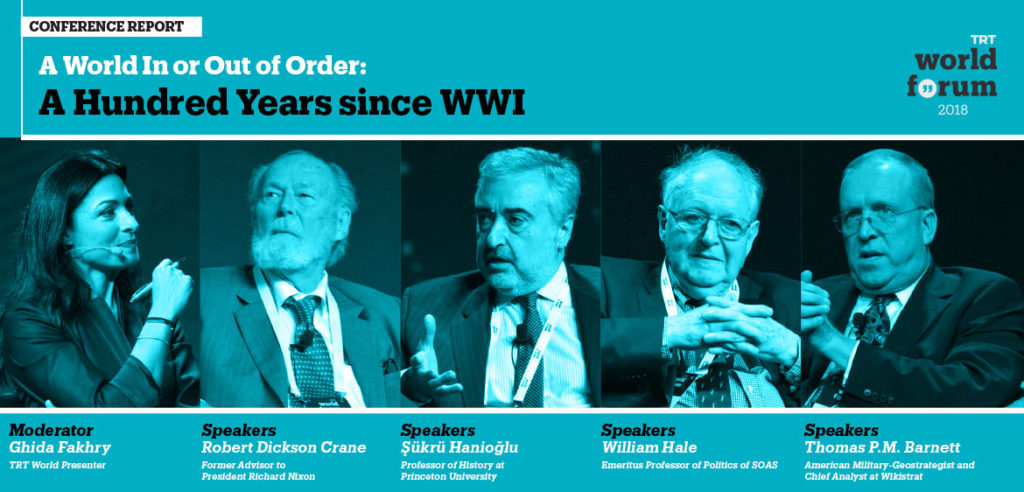
A World in or Out of Order: A Hundred Years since WWI
The current world order, composed of nation-states, emerged in its currently recognisable form early in the 20th century. While the “Great War” of 1914-18 led to the consolidation of the British and French Empires, it also resulted in the collapse of three other centuries- old entities: the Ottoman, Austro-Hungarian, and Russian Empires (following the Bolshevik
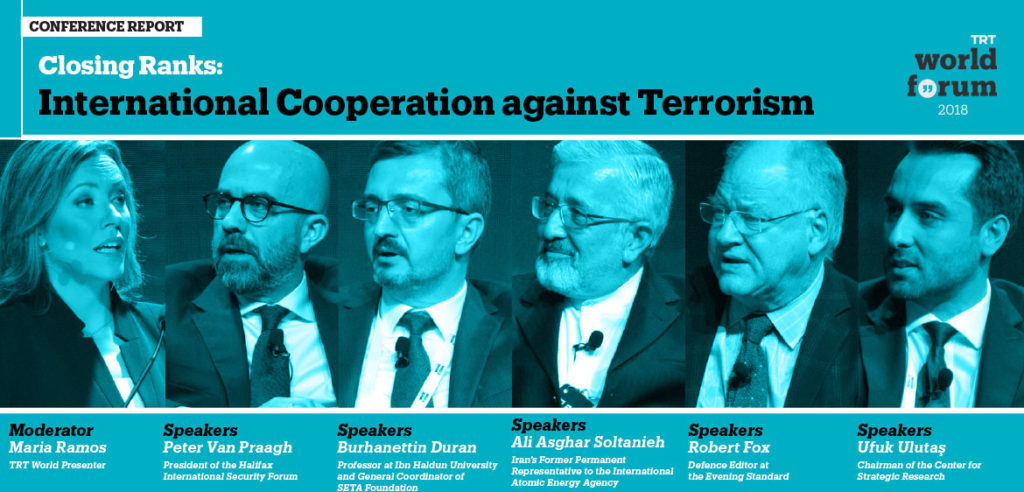
Closing Ranks: International Cooperation against Terrorism
The session “Closing Ranks: International Cooperation against Terrorism”, brought together experts and leading practitioners in order to discuss current challenges facing counter-terrorism cooperation around the world. The speakers addressed a variety of issues related to terrorism, including root causes and possible solutions moving forward. As part of the session, the panellists advanced various ways in
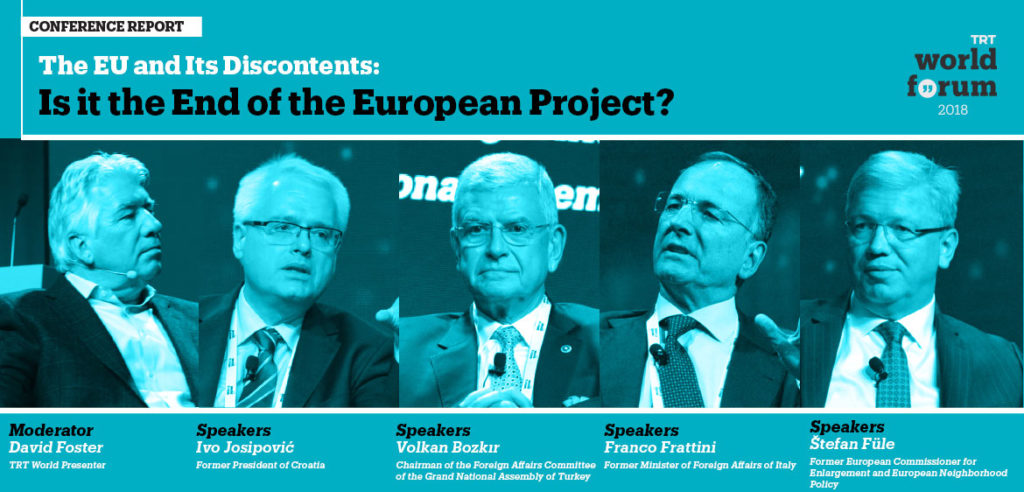
The EU and Its Discontents: Is it the End of the European Project?
The European Union (EU) has been referred to as one of the most successful post- Second World War projects, helping maintain peace and prosperity in Europe for over six decades. However, there have been increasing concerns about its future. Economic problems within the Eurozone have led to significant political turmoil among the member states, posing
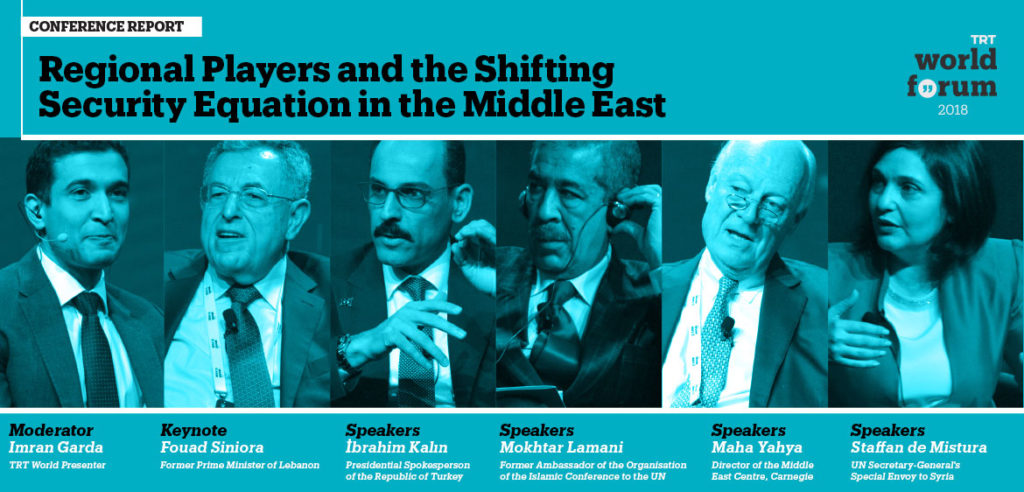
Regional Players and the Shifting Security Equation in the Middle East
The future of the Middle East remains one of the most hotly debated and controversial issues of today. Intermittent conflict remains a defining feature of the region, with the Syrian war being the most recent example. “Regional Players and the Shifting Security Equation in the Middle East,” discussed the many issues ranging from conflicts
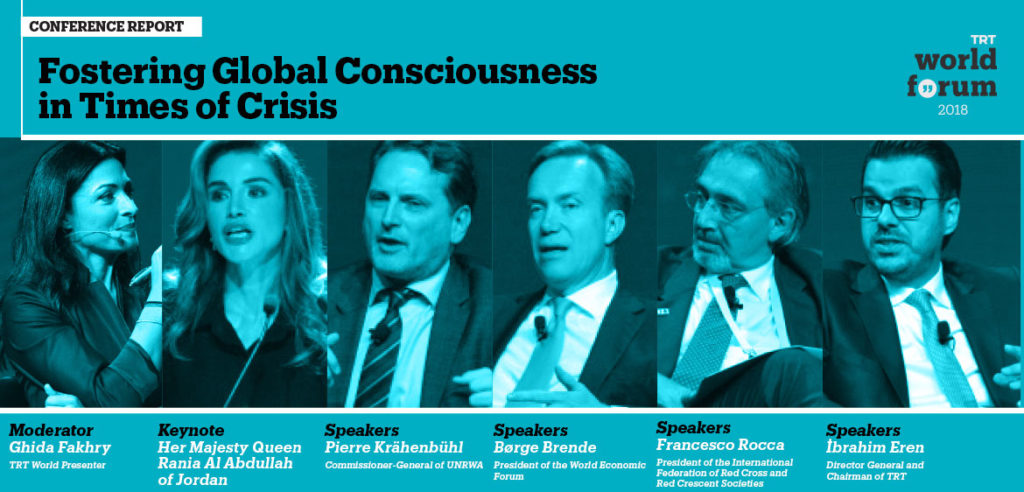
Fostering Global Consciousness in Times of Crisis
The ongoing refugee crisis represents the most significant humanitarian tragedy since World War II. Ongoing conflicts in Syria, Yemen and Afghanistan, along with difficult security and economic environments throughout significant portions of the Middle East, Africa and parts of Asia have led millions of people to leave their homelands in search of refuge and a
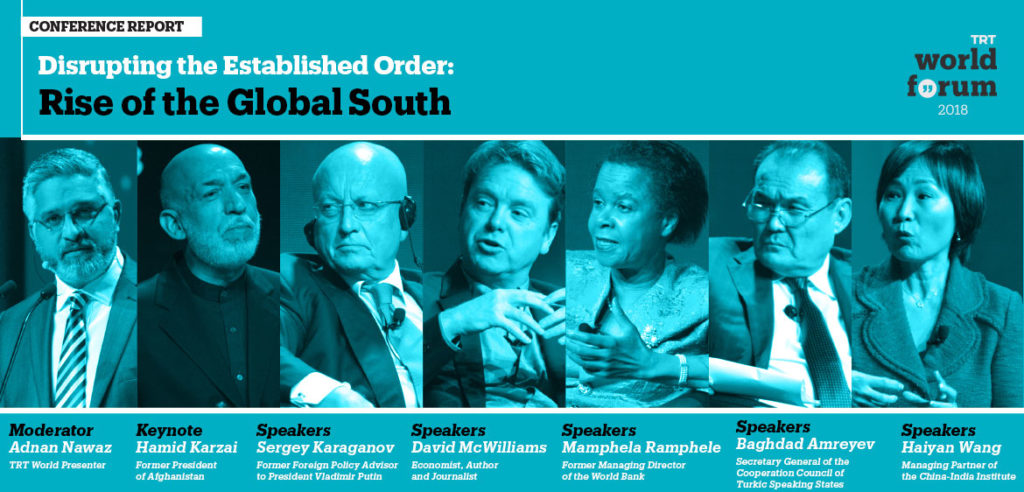
Disrupting the Established Order: Rise of the Global South
The panel “Disrupting the Established Order: Rise of the Global South” discussed issues surrounding the established current world order and explored the new emerging players in the international arena that have the potential to change and shift the power dynamics. In the current international world order, countries use their respective economic powers to pursue their
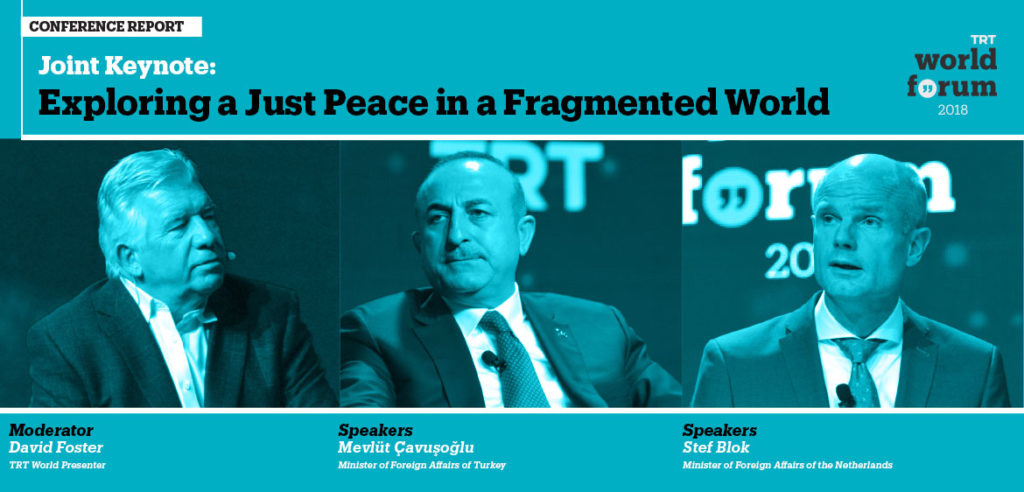
Exploring a Just Peace in a Fragmented World
The geopolitical order today remains constantly fragmented due to the pervasiveness of an unequal administrative and institutional directive. Therefore, addressing and taking steps to limit divisive policies across the globe becomes a subject to be addressed amongst major stakeholders. Correspondingly, persisting inequalities cannot be addressed without a co-operative social justice system. This makes it necessary
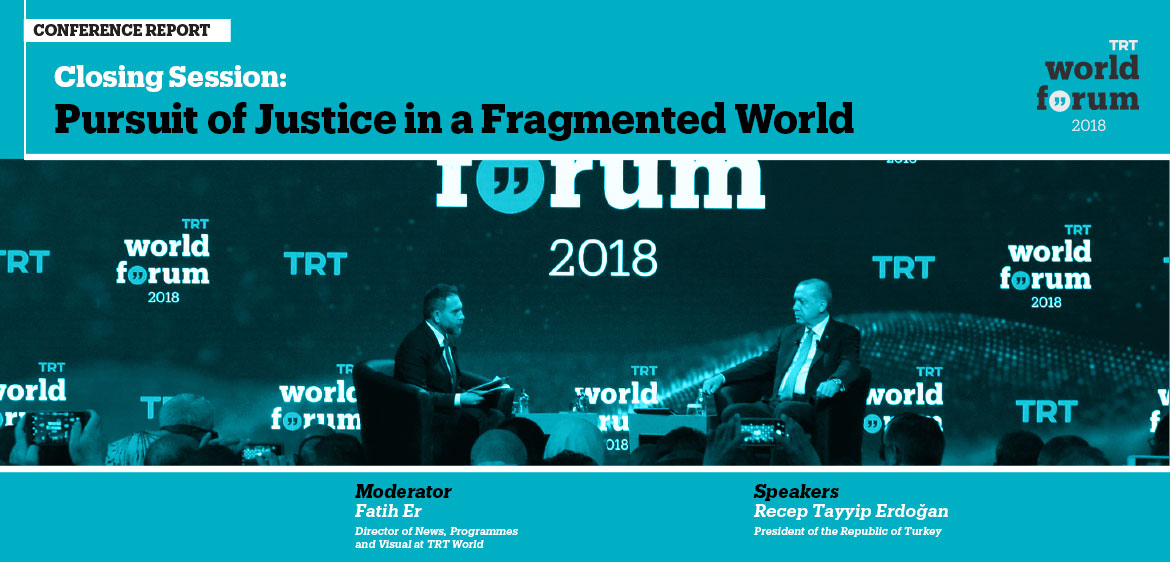
Pursuit of Justice in a Fragmented World
Turkish President Recep Tayyip Erdoğan opened his speech by recalling the importance of learning lessons from history, and reiterated that if only people were to take heed, history would not repeat itself. He criticised the UN for its inability to provide solutions to global issues. He pointed to the ineffectiveness of the global system in
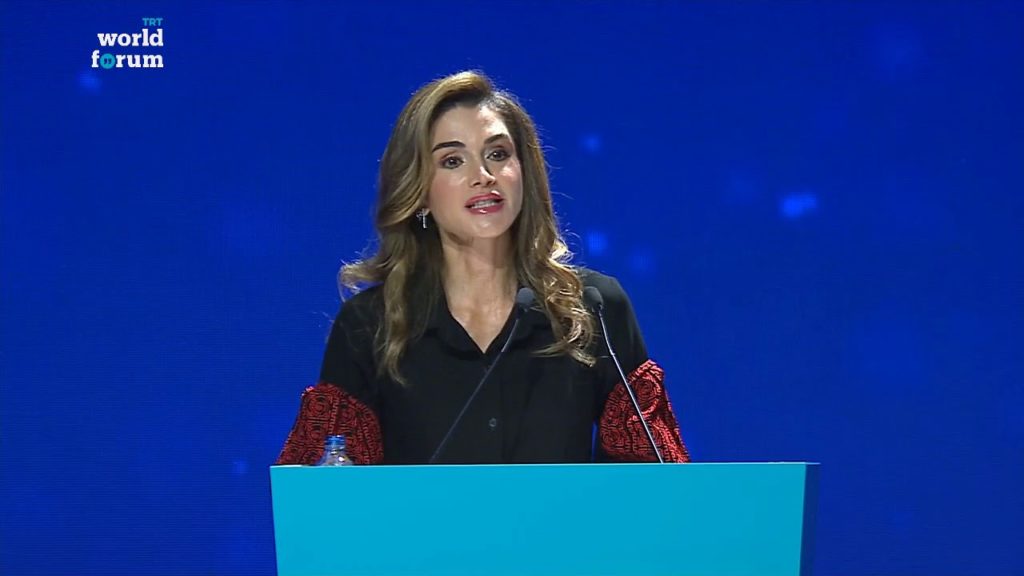
Keynote Speech by HM Queen Rania Al Abdullah of Jordan
Queen Rania begins by praising Turkey’s steadfast commitment to the millions of refugees it has welcomed inside its borders and its geostrategic significance in the region. On the other hand, Her Majesty pointed to the fact that even if nations share different worldviews, rooted deep in the core of our humanity, we share the same
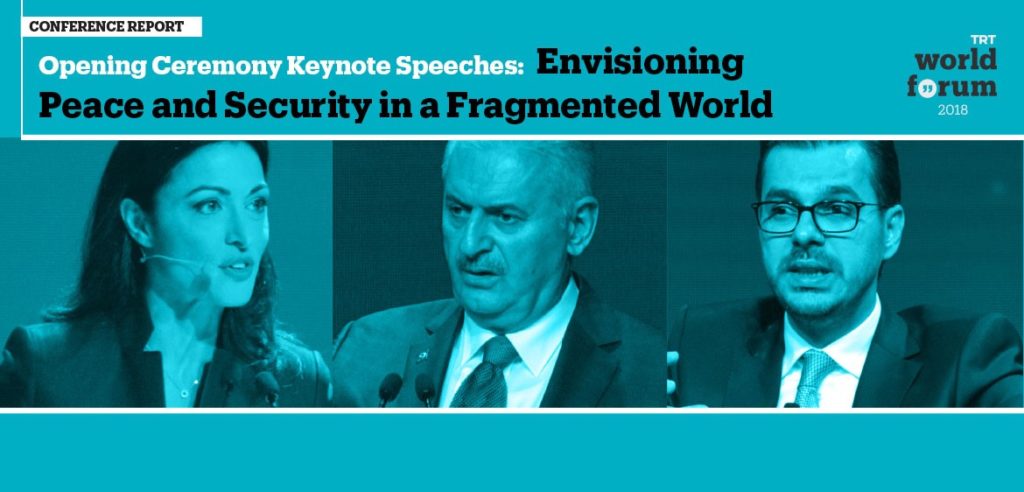
Opening Speech: Envisioning Peace and Security in a Fragmented World
President of the Grand National Assembly of Turkey Binali Yıldırım and Director General and Chairman of TRT İbrahim Eren delivered keynote speeches at the opening ceremony of the TRT World Forum and highlighted a wide range of issues that are of primary interest to peace and security in today’s increasingly fragmented world. İbrahim Eren, Director
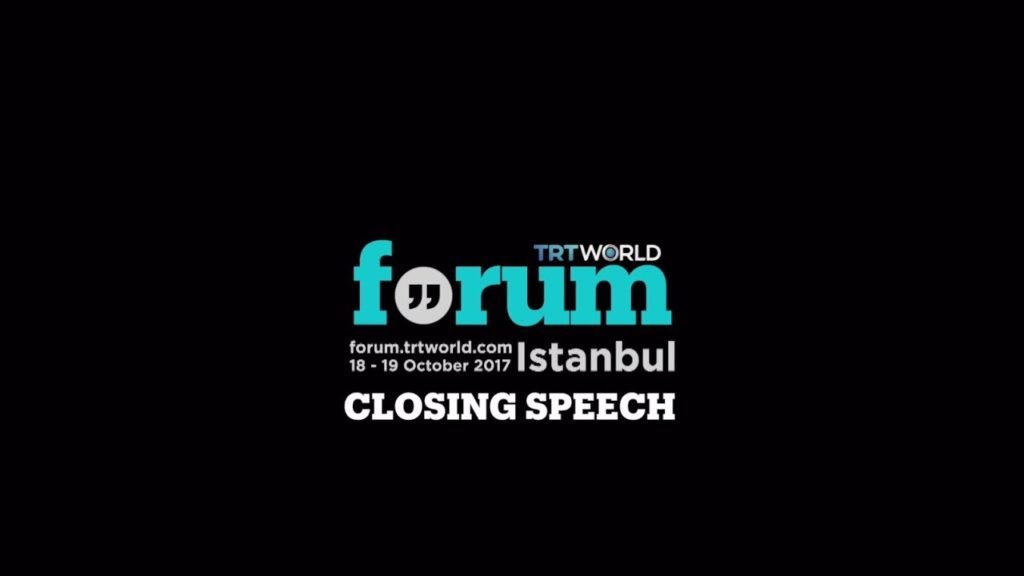
Closing Speech: Inspiring Change in an Age of Uncertainty
His Excellency President Recep Tayyip Erdoğan participated as the guest of honour in the TRT World Forum 2017 to give the keynote speech at the Forum under the moderation of Fatih Er, Director of News and Programmes at TRT World. President Erdoğan’s remarks spanned from the failure of the current global order in sustaining the
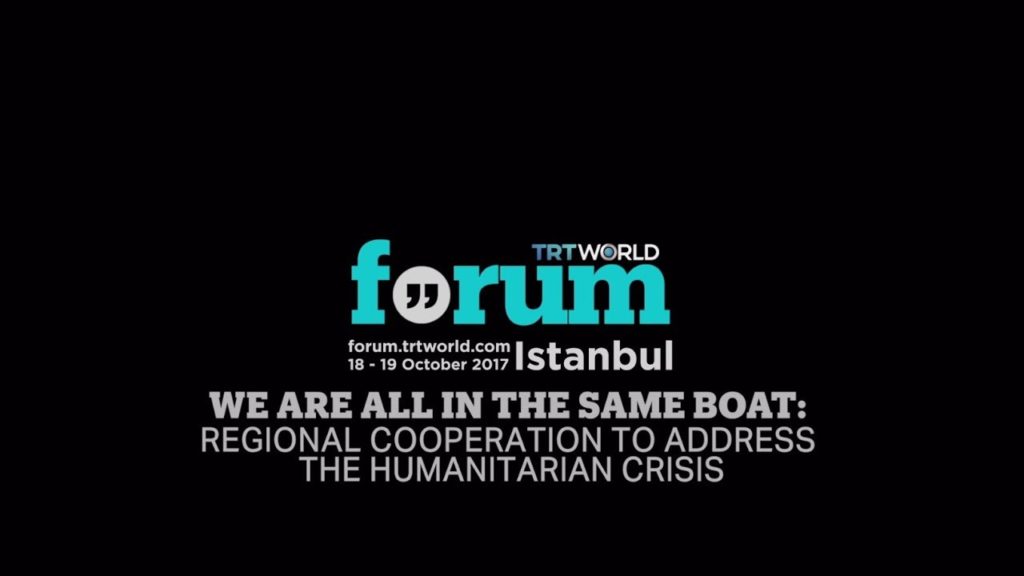
We Are All In the Same Boat: Regional Cooperation to Address the Humanitarian Crisis
The second day of the TRT World Forum 2017 opened with a joint keynote speech by José Luis Rodríguez Zapatero, the former Prime Minister of Spain, and Mevlüt Çavuşoğlu, the Minister of Foreign Affairs of Turkey. The main theme of their speech was the lack of international cooperation in addressing pressing global issues. They particularly
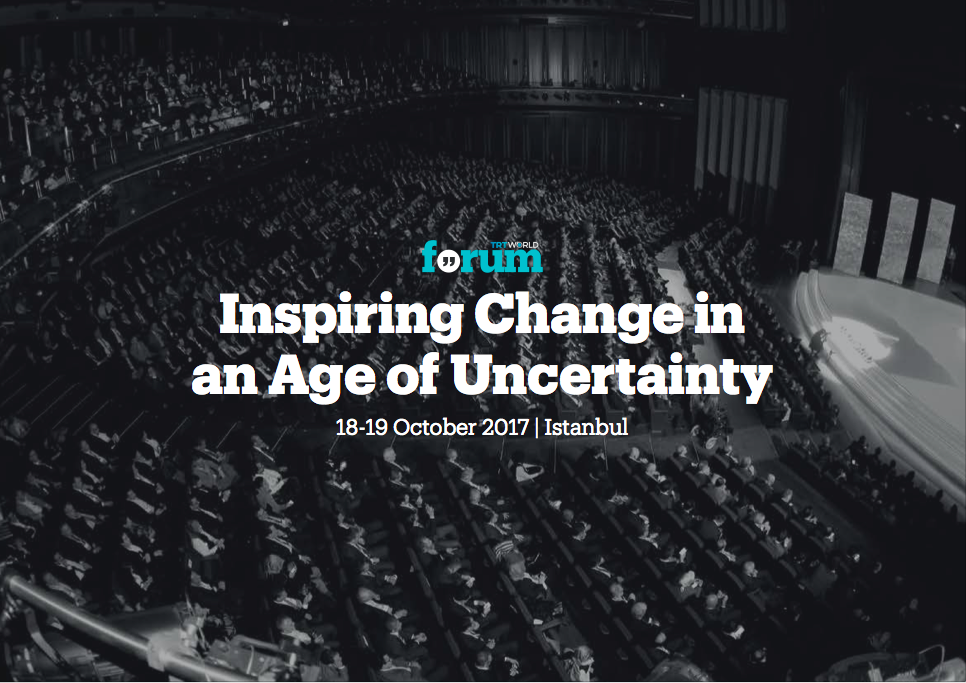
TRT World Forum 2017 Book
The TRT World Forum 2017, a two-day summit organised by the TRT World Research Centre, gathered academics, politicians, journalists, experts and members of civil society to discuss the most pertinent issues in the world today. This year’s theme `Inspiring Change in an Age of Uncertainty’ sparked fierce debate around the hurdles that contribute to the
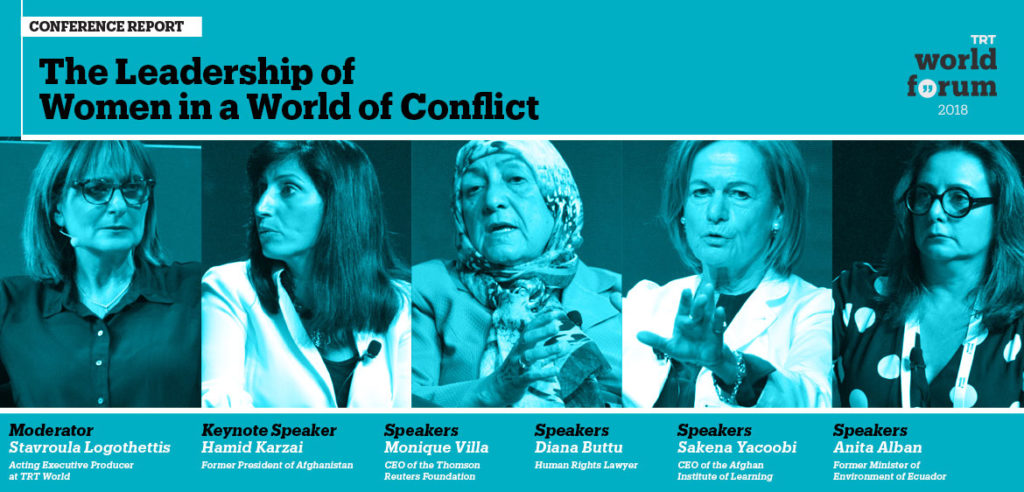
The Leadership of Women in a World of Conflict
Historically, women have faced gender-based violence and discrimination for a variety of reasons. They have experienced major obstacles including restrictions in education, the work place and in their own homes. Today, in a world marked by rampant conflict, there is an urgent need for increased female empowerment and leadership. Despite the widespread restrictions imposed upon
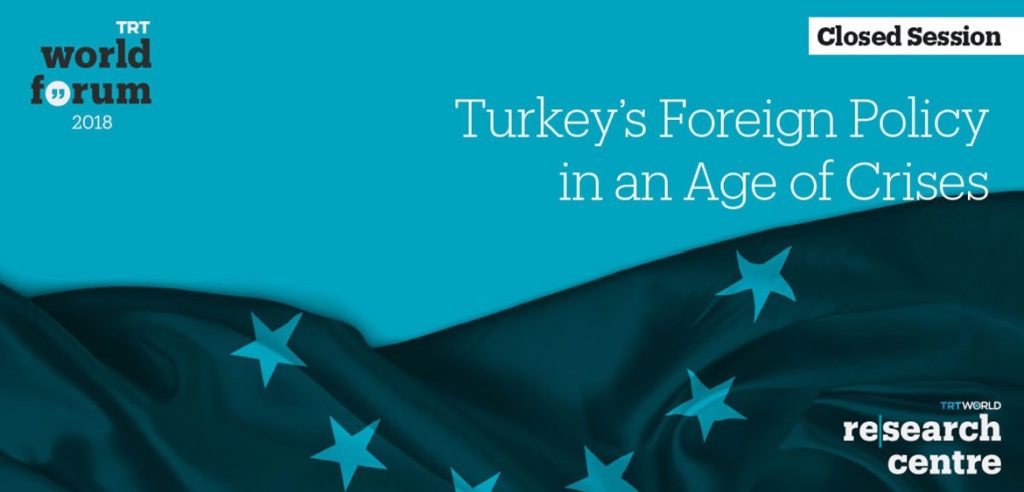
Turkey’s Foreign Policy in an Age of Crises
On October 4th, 2018, TRT World Research Centre held a roundtable meeting with the title of ‘Turkey’s Foreign Policy in an Age of Crises’. This was part of a series of roundtable meetings forming part of the two-day TRT World Forum 2018, which included 8 public sessions and 11 closed sessions. This roundtable meeting was
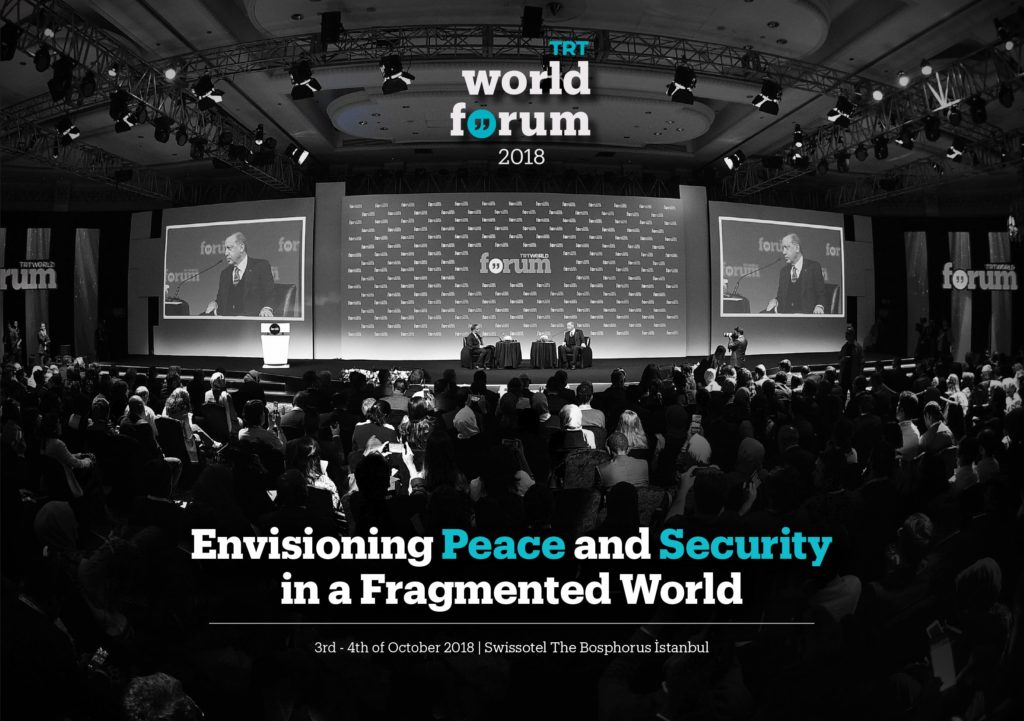
TRT World Forum 2018 Book
The TRT World Forum 2018, a two-day summit organised by the TRT World Research Centre, brought together a wide array of distinguished academics, journalists, politicians and members of civil society to analyse and discuss some of the most important questions that continue to define our world on the theme of ‘Envisioning Peace and Security in
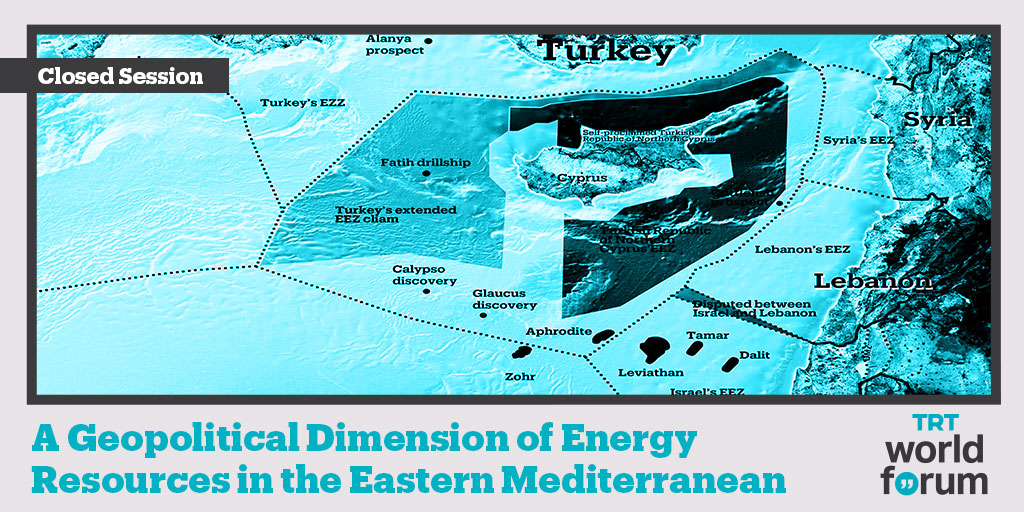
Geopolitical Dimensions of Energy Resources in the Eastern Mediterranean
On October 21, 2019 TRT World Research Centre held a roundtable meeting titled “Geopolitical Dimensions of Energy Resources in the Eastern Mediterranean”. This was part of a series of roundtable meetings in the two-day TRT World Forum 2019, which included 12 public sessions and 15 closed sessions and nine keynote speeches and exclusive talks. This roundtable meeting
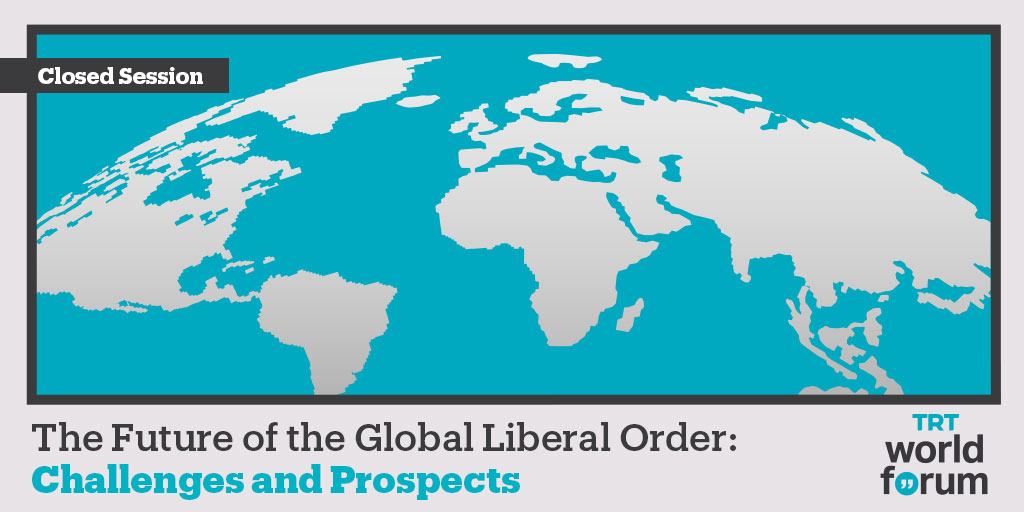
The Future of the Global Liberal Order: Challenges and Prospects
On October 22, 2019 TRT World Research Centre held a roundtable meeting titled “The Future of the Global Liberal Order: Challenges and Prospects”. This was part of a series of roundtable meetings in the two-day TRT World Forum 2019, which included 12 public sessions and 15 closed sessions and nine keynote speeches and exclusive talks. This roundtable
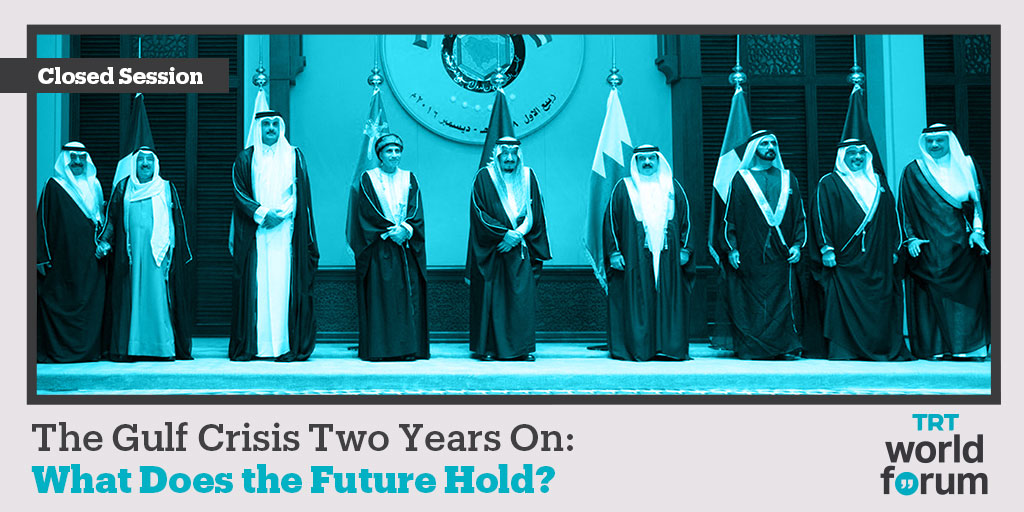
The Gulf Crisis Two Years On: What Does the Future Hold?
In June 2017, a Saudi-led coalition that included the United Arab Emirates (UAE), Bahrain and Egypt cut their diplomatic relations with Qatar and imposed a land, air and sea blockade on the small Gulf state. The blockading countries accused Qatar of supporting ‘terrorism’ and released a list of 13 demands: the demands included severing ties
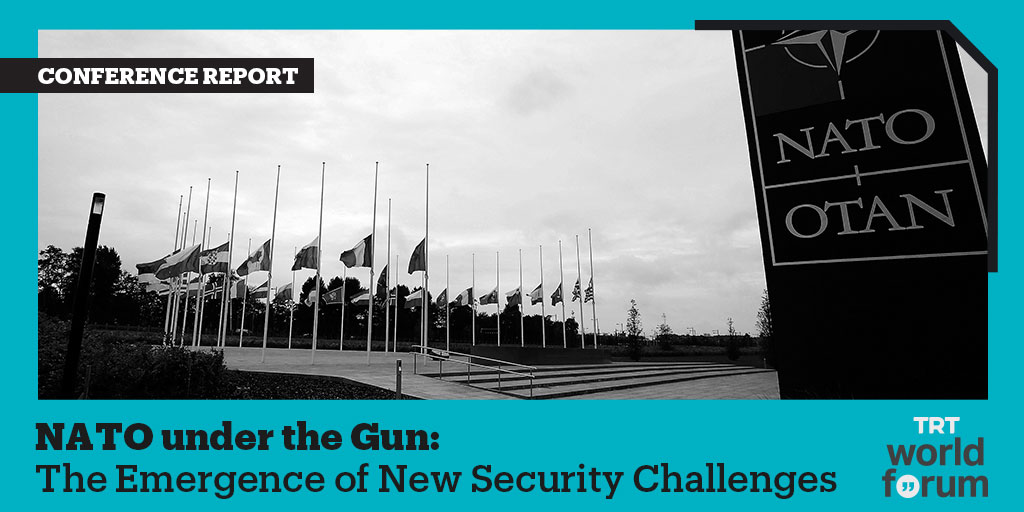
NATO under the Gun: The Emergence of New Security Challenges
The session ‘NATO under the Gun: Emergence of New Security Challenges’ discussed the efficacy and relevance of NATO in the face of new security challenges. The keynote speaker, Turkish Defence Minister Hulusi Akar, underlined the importance of NATO in ensuring transatlantic security since the end of Second World War. Minister Akar, then elaborated on the
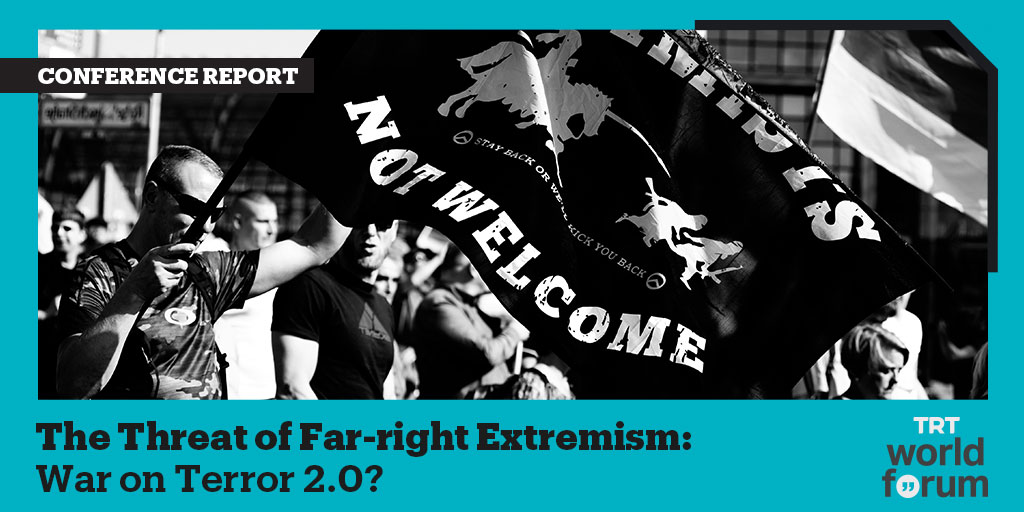
The Threat of Far-right Extremism: War on Terror 2.0?
The session ‘the Threat of Far-Right Extremism’ discussed the divergent understandings of terrorism, the reasons behind the rise of far-right, the role of social media, the challenges that come with it and how to tackle these problems. Bosniak member of the Bosnian Presidency Sefik Dzaferovic stated that extremism and terrorism can be overcome through solidarity
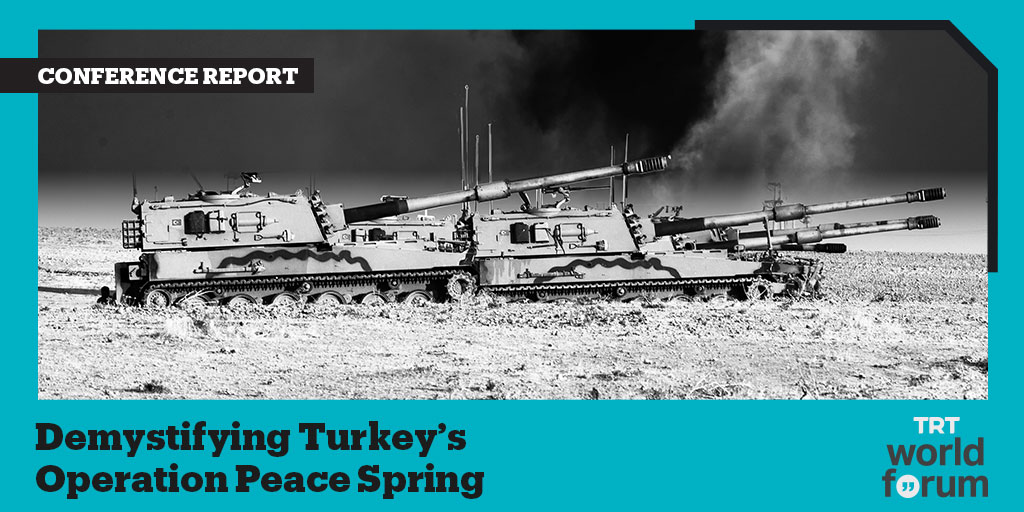
Demystifying Turkey’s Operation Peace Spring
The session ‘Demystifying Turkey’s Operation Peace Spring’ discussed Turkey’s recent military operation to eliminate the terrorist threat from the PKK/YPG in Northeast Syria. The keynote speaker, Turkey’s Foreign Minister Mevlüt Çavuşoğlu, explained Turkey’s policy towards Syria and what Turkey wants in the country. FM Çavuşoğlu said that Turkey believes that there is no military solution
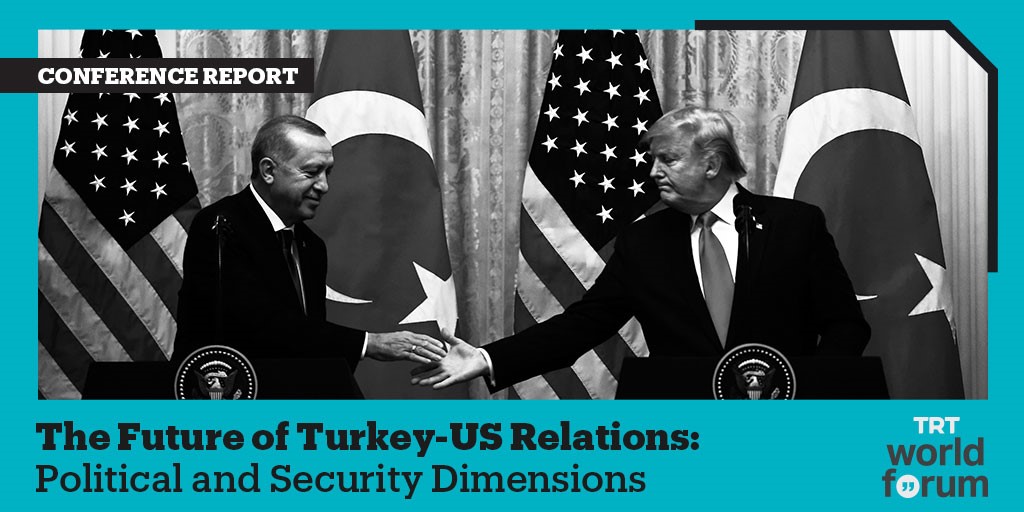
The Future of Turkey-US Relations: Political and Security Dimensions
The Panel “The Future of Turkey-US Relations: Political and Security Dimensions” discussed the roots of the current tension between Turkey and the US and its future trajectory. Regarding the alignment between the US and PKK’s Syrian offshoot, the YPG, Kılıç Buğra Kanat highlighted that a pattern characterized by US disregard of Turkey’s security concerns has
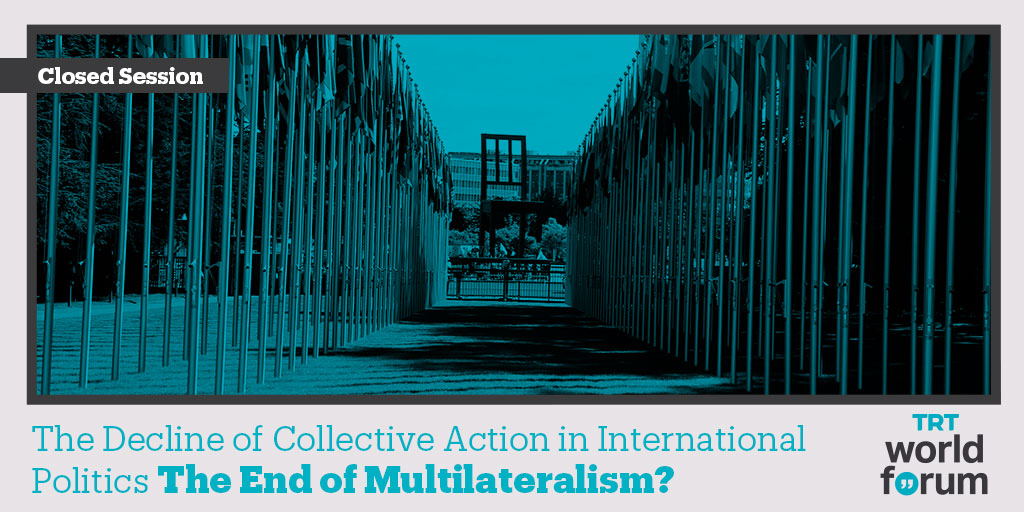
The Decline of Collective Action in International Politics The End of Multilateralism?
On Monday, October 21, 2019, TRT World Research Centre held a roundtable meeting entitled ‘The Decline of Collective Action in International Politics: The End of Multilateralism?’ The session aimed to discuss one of the most vital questions in international relations: How should states act? Unilaterally or multilaterally? Multilateralism requires states to follow international norms and
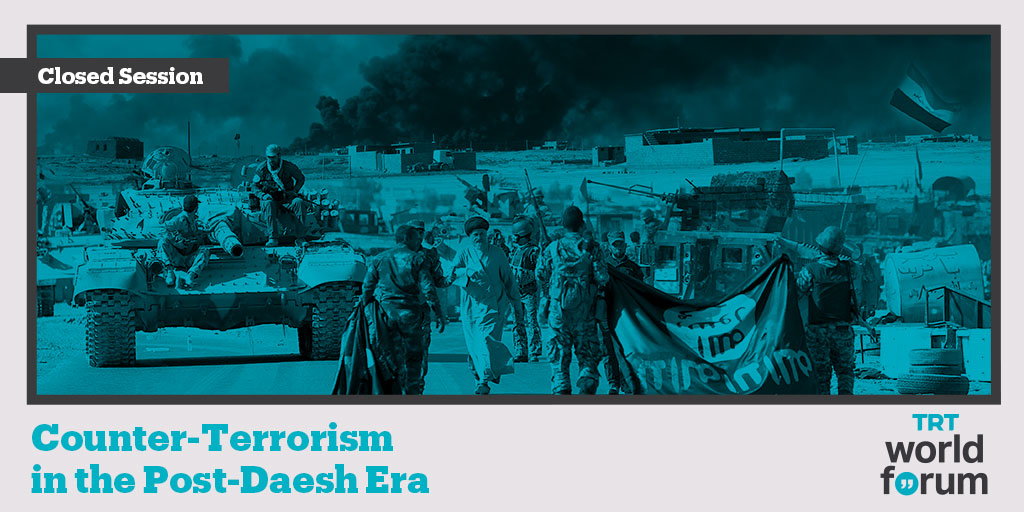
Counter Terrorism in the Post-Daesh Era
For years, Daesh – otherwise known as ISIS or ISIL – has been at the forefront of global counter-terrorism concerns due to its territorial ambitions and the particularly gruesome and theatrical manner in which it has conducted its attacks (Weiss and Hassan, 2015). However, as dangerous and as brutal as the jihadist terror group is,
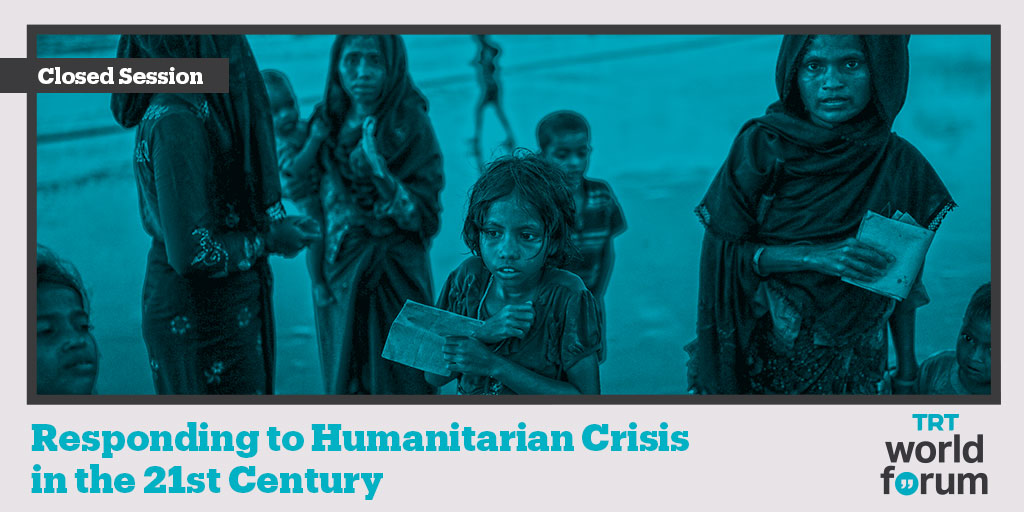
Responding to Humanitarian Crisis in the 21st Century
The world continues to experience the worst humanitarian and refugee crisis since the Second World War. According to the United Nations (UN), war, civil strife and natural disasters have displaced 70.8 million people from their homes. Out of these nearly 71 million people, 41.3 million are internally displaced (IDPs), 25.9 million are refugees and 3.5
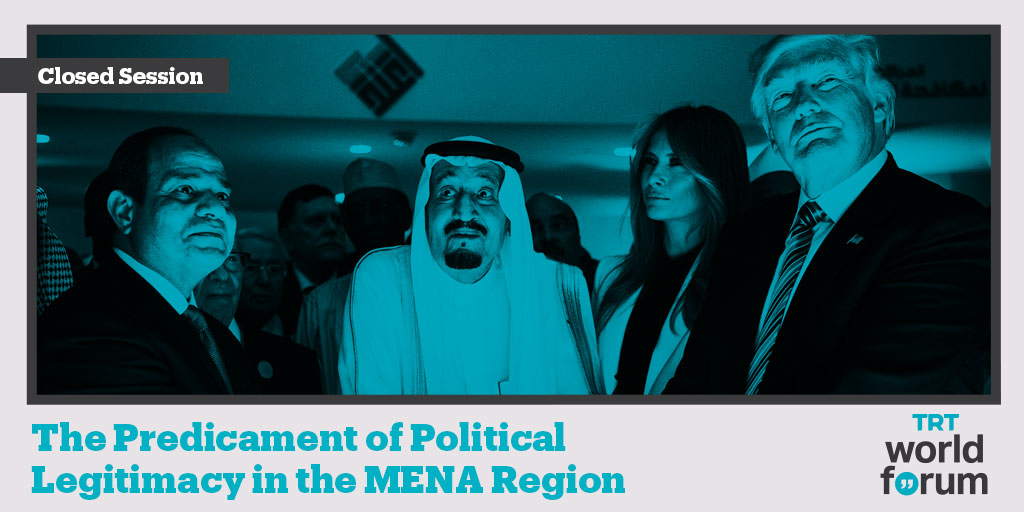
The Predicament of Political Legitimacy in the MENA Region
In 1977, Michael C. Hudson claimed that the central problem of government in the Arab world was political illegitimacy. After 40 years, in early 2011, the onset of mass revolts in large parts of the Middle East and North Africa (MENA) have highlighted the key relevance of the question of political legitimacy in MENA countries.
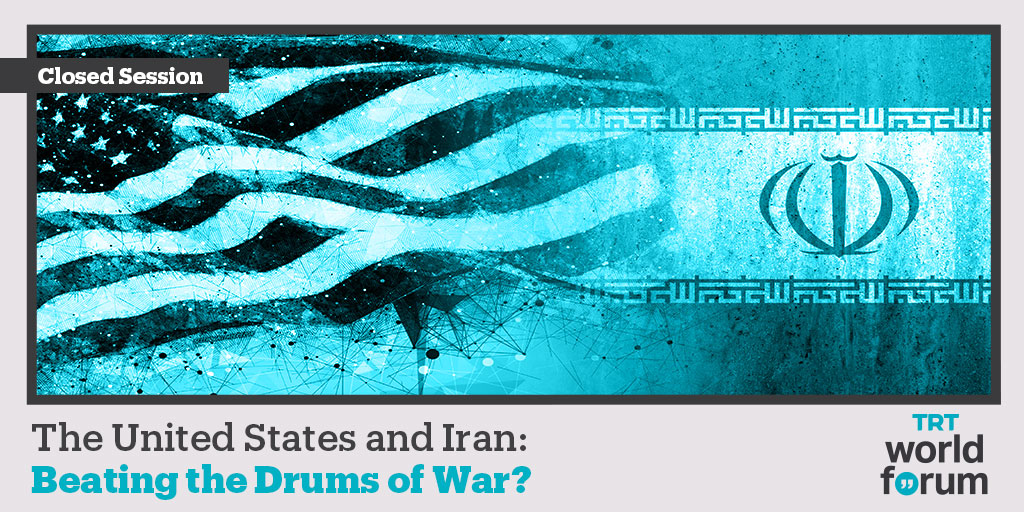
The United States and Iran: Beating the Drums of War?
On May 8, 2018, Donald Trump announced that the United States would unilaterally withdraw from the Joint Comprehensive Plan of Action (JCPOA) (Martellini and Zucchetti, 2016). Along with accusing Tehran of failing to live up to its part of the deal, the US re-imposed economic sanctions that had been previously lifted as part of the
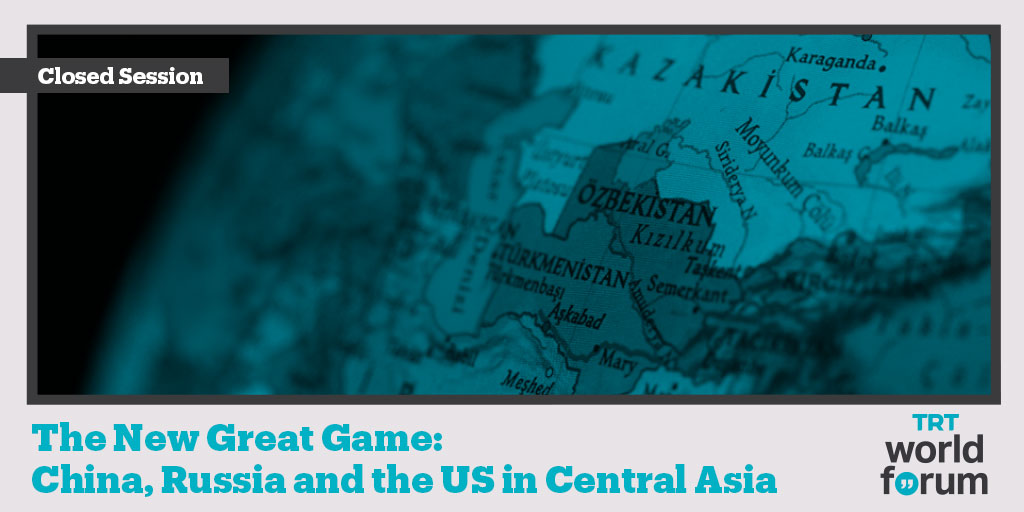
The New Great Game: China, Russia and the US in Central Asia
Central Asia has become a focal point of Asia-Pacific international relations after the collapse of the Soviet Union in 1991. Geographically, the region expands from the Caspian Sea to China, and from Afghanistan to Russia. It canvasses Kazakhstan, Kyrgyzstan, Tajikistan, Turkmenistan, and Uzbekistan. In addition to its significant geographical size, the region is also quite

Managing Migration: Europe and the Refugee Crisis
The panel “Managing Migration: Europe and the Refugee Crisis”, discussed the future of refugees in Europe. The keynote speaker Francesco Rocca, President of the International Federation of Red Cross and Red Crescent Societies, argued that the situation of migrant boats in the Mediterranean Sea is a huge threat to humanitarian action. He spoke about what
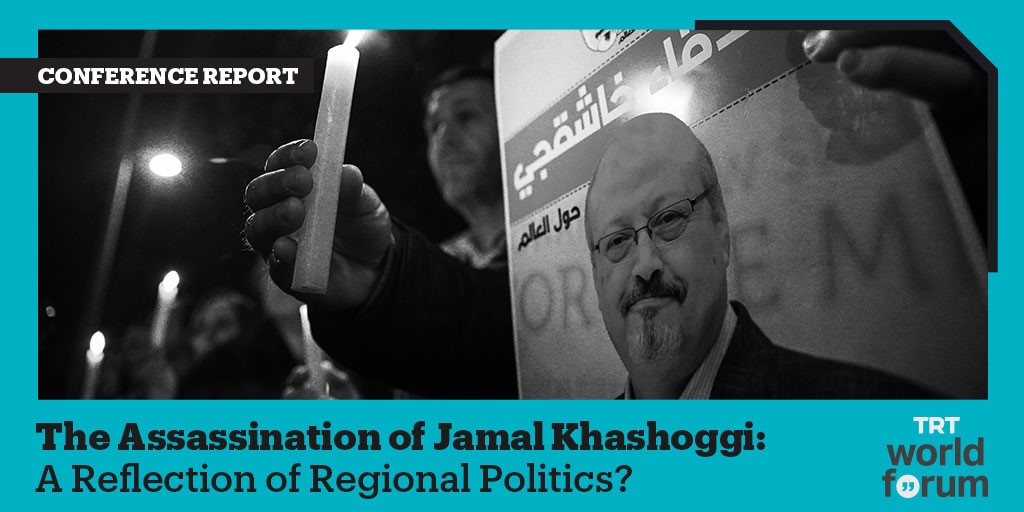
The Assassination of Jamal Khashoggi: A Reflection of Regional Politics?
The session “The Assassination of Jamal Khashoggi: A Reflection of Regional Politics?” discussed the murder of the prominent Saudi journalist and Washington Post contributor Jamal Khashoggi, which provoked an international outcry and continues to have strategic, political and legal ramifications. The speakers unanimously mentioned that Jamal was a moderate citizen who wanted to make Saudi
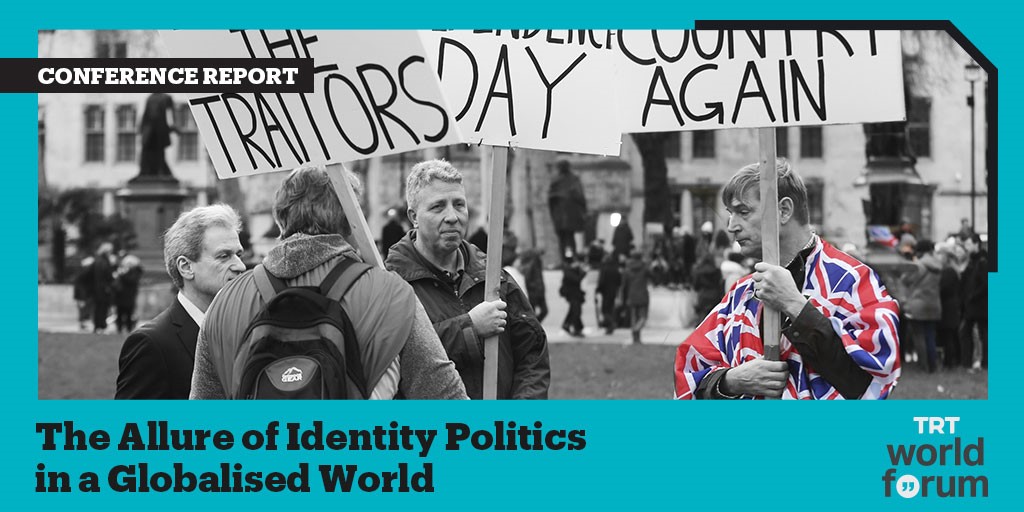
The Allure of Identity Politics in a Globalised World
The panel “The Allure of Identity Politics in a Globalised World” discussed the current increasein social and political instability that has ignited economic, religious and ethnic divisions in various societies around the world. In his keynote speech, leader of the Pakatan Harapan Coalition and President of People’s Justice Party of Malaysia, Anwar Ibrahim, stated that

The EU: A Vote of No Confidence?
The panel “The EU: A Vote of No Confidence?” discussed the future trajectory of the EU regarding the latest developments including Brexit, economic challenges, the refugee crisis, the enlargement process, Turkey’s accession process and the EU values. Commenting on the Brexit, Sayeeda Warsi stated that the Brexit campaign was xenophobic and grounded on misrepresented political

Environmental Security: Tragedy of Commons
The panel presented a fertile environment for environmental scientists, engineers, social scientists, diplomats and politicians from different countries to discuss not just climate change, but also various immediate environmental problems such as microplastic pollution in the oceans as well as ozone depletion. While coming from different backgrounds, through the lively discussions that took place speakers
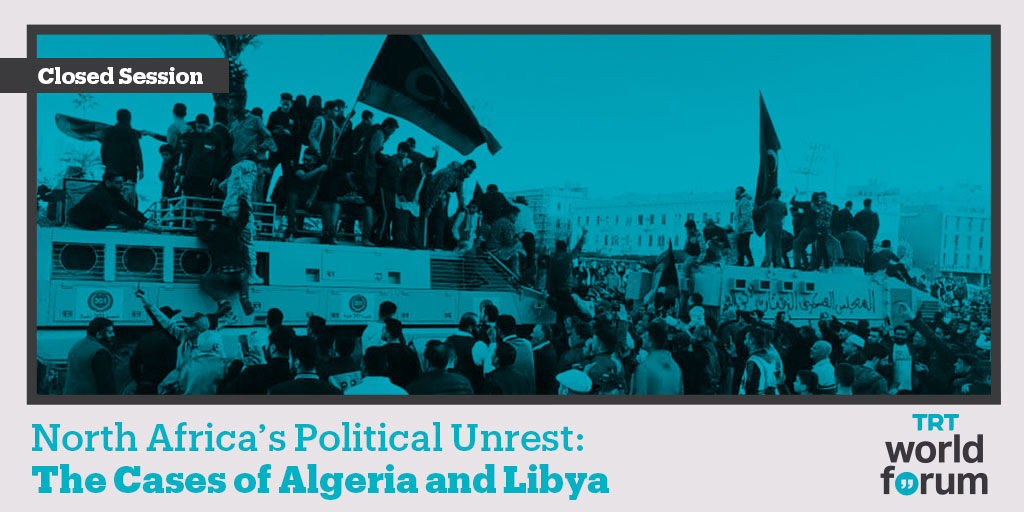
North Africa’s Political Unrest: The Cases of Algeria and Libya
The year 2019 has been turbulent in North Africa, with events in Libya and Algeria emblematic of the wider dynamics at play in the region. The attempts of Libya and Algeria toward political transitions display two distinct representations of a wider revolutionary spirit which has characterised North African politics during this decade. (Laremont, 2013) Although
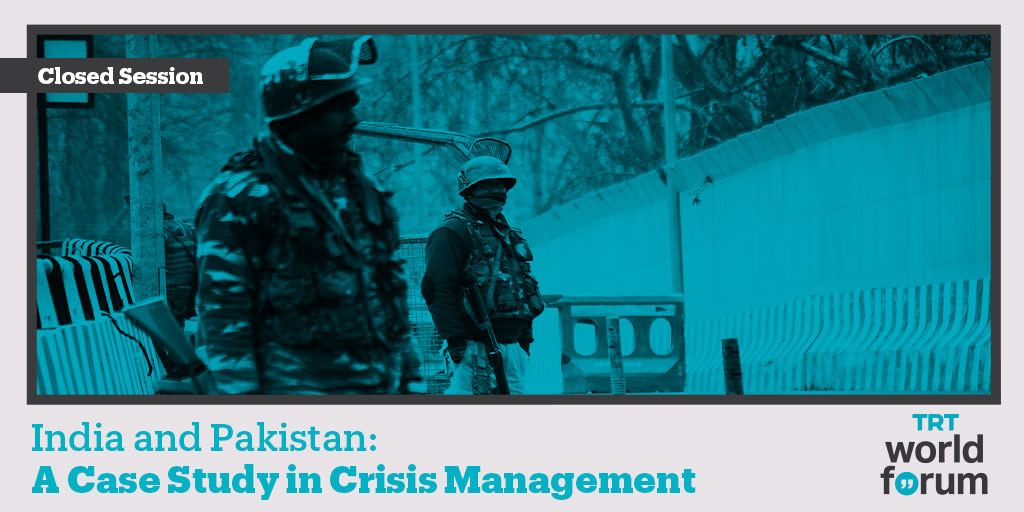
India and Pakistan: A Case Study in Crisis Management
Under the auspices of TRT World Forum 2019, a closed session was held to debate ‘India and Pakistan: A Case Study in Crisis Management’. The discussion during this session primarily remained focussed on the issue of Jammu and Kashmir particularly in the backdrop of India’s decision to end the special status of the Indian Administered
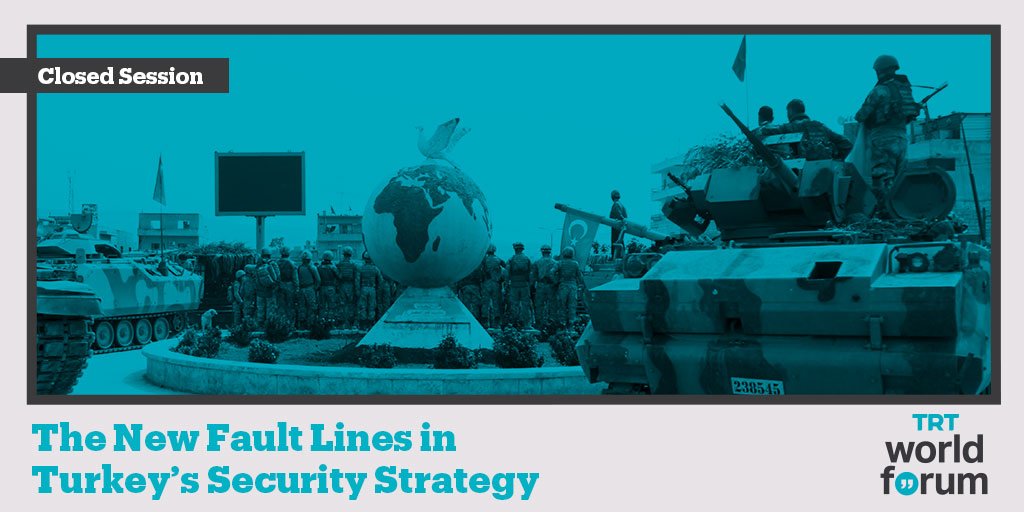
The New Fault Lines in Turkey’s Security Strategy
When the actors are blended in the strong memory of history, international crises are probably the best teachers of destiny of geography. This is especially true for Turkey, as unprecedented volatile circumstances have been unfolding in the Levant since the foundation of the Turkish Republic in 1923. The more Turkey becomes aware of its past,

The Future of EU-Turkey Relations
The future of EU- Turkey relations was discussed during the TRT World Forum in both public and closed sessions, from 22-23 October 2019. Approximately 40 participants were present, including experts, politicians, academicians and bureaucrats in the closed session. The speakers shared their own perspectives and experiences who came from different background as academic, diplomat, bureaucrat
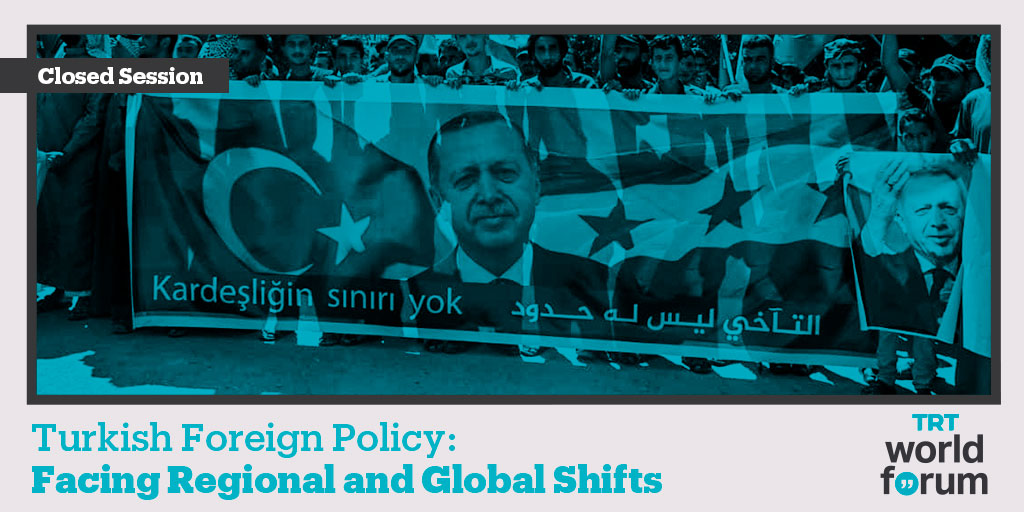
Turkish Foreign Policy: Facing Regional and Global Shifts
The shifts and challenges in global and regional politics were discussed in the Closed Session, including the key opportunities and challenges for Turkish foreign policy in this transition period. According to speakers who came from different backgrounds, including academic, researcher, politician and diplomat, to expertise on Turkish foreign policy, Turkey has become a more potent
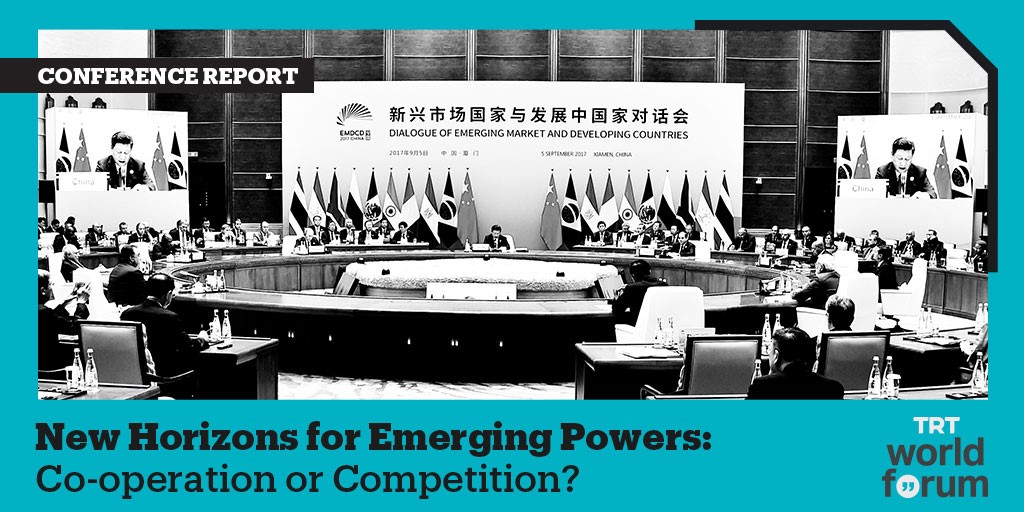
New Horizons for Emerging Powers: Co-operation or Competition?
The panel “New Horizons for Emerging Powers: Co-operation or Competition?” discussed the future of the world that rests on the relationship between developed and emerging states. Minister of Treasury and Finance of Turkey, Berat Albayrak, in his keynote speech, stated that the world needs a new vision to address modern-day challenges and reduce tensions. Protectionist
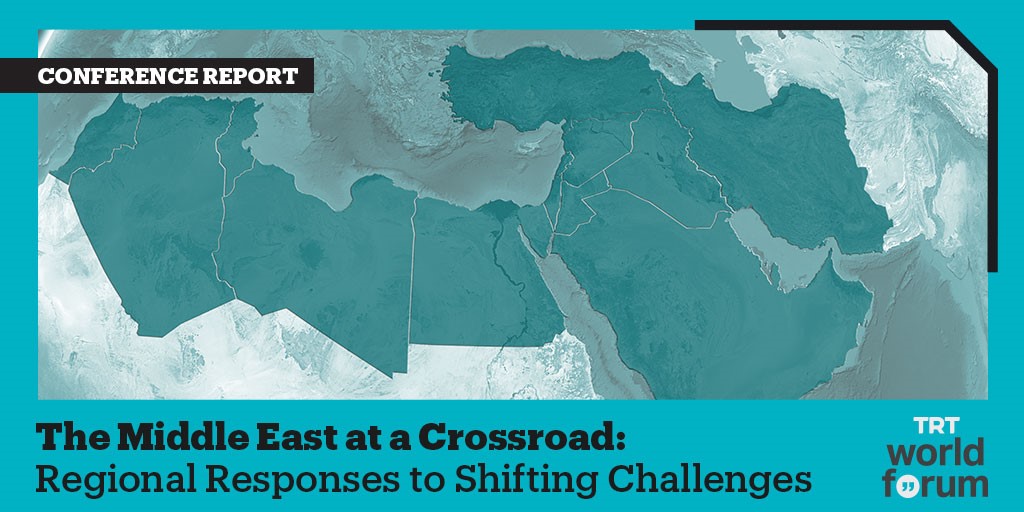
The Middle East at a Crossroad: Regional Responses to Shifting Challenges
The panel “The Middle East at a Crossroad: Regional Responses to Shifting Challenges” focused on a variety of issues ranging from domestic issues facing countries in the region to the implications of the shifting rivalries among different actors in the region. Elaborating on the situation in Tunisia, Rached Ghannouchi pointed to achievements in the country
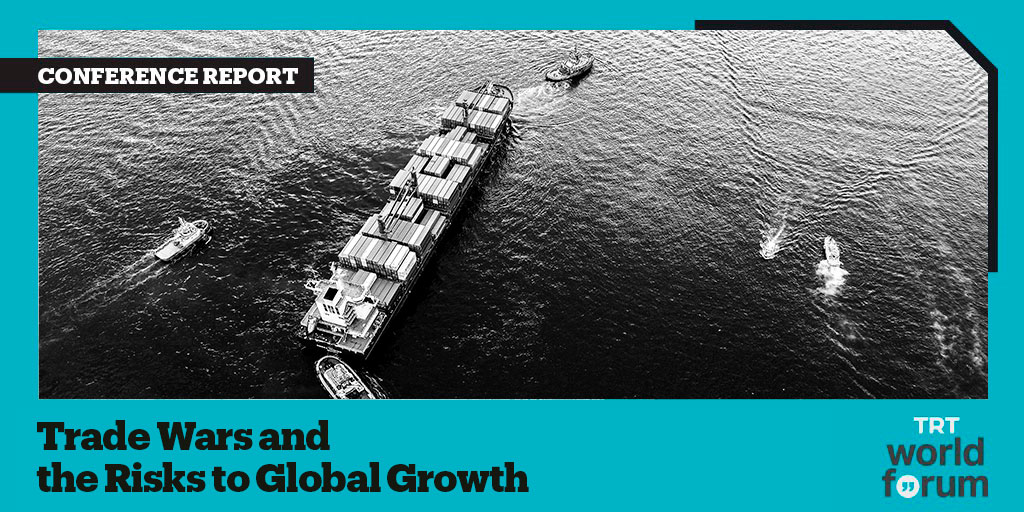
Trade Wars and the Risks to Global Growth
The panel “Trade Wars and the Risks to Global Growth” discussed how trade wars, protectionist economic policies, sanctions and tariffs are harmful to global economic growth, peace and prosperity. Former Prime Minister of Turkey Binali Yıldırım, stressed the fast-changing dynamics in the world economy and politics. He emphasised the rise of China and other emerging
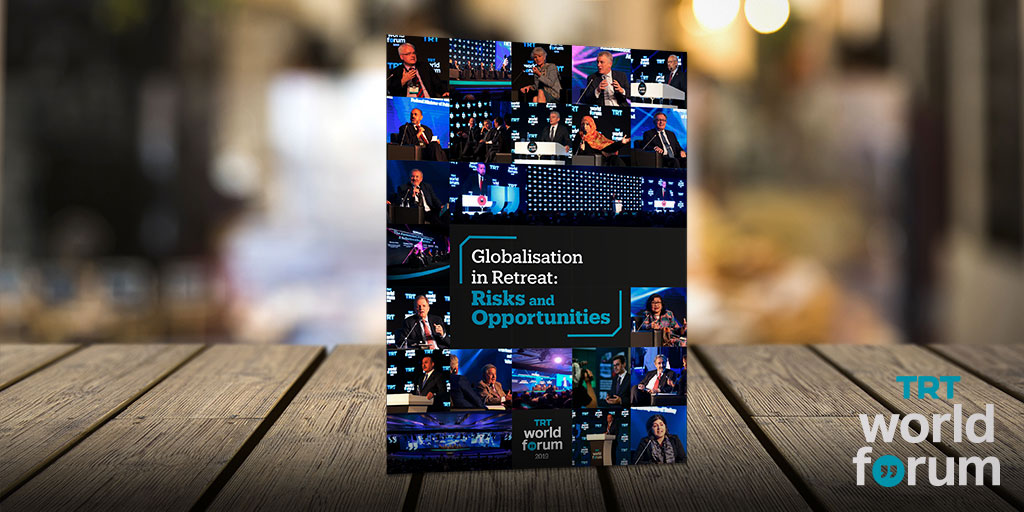
TRT World Forum 2019 Book
In October 2019 TRT World organised its third annual TRT Word Forum under the theme “Globalisation in Retreat: Challenges and Opportunities”. During the two-day forum more than 1500 esteemed speakers and guests, including politicians, academics, journalists and members of civil society engaged in stimulating discussions on the challenges that lay before our world. This book
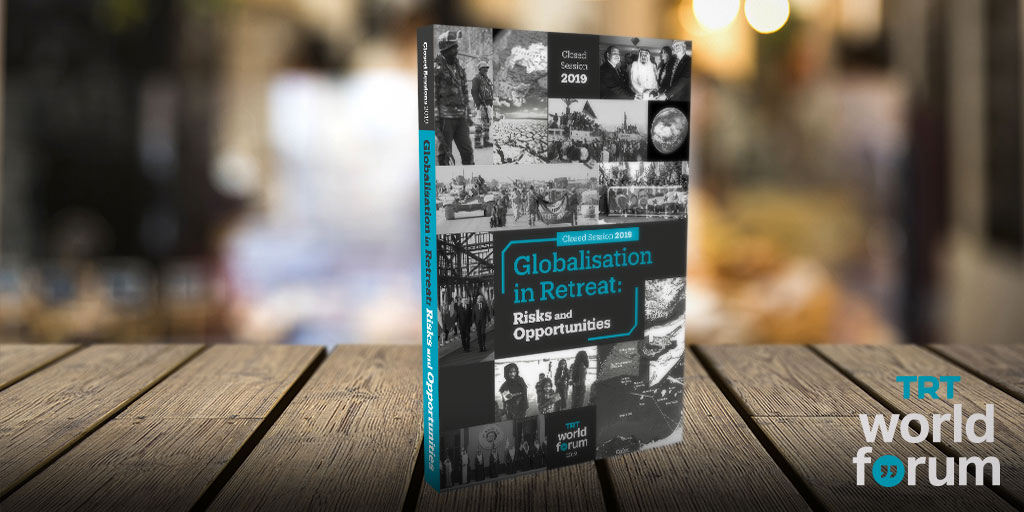
TRT World Forum 2019 Closed Sessions Book
In October 2019 TRT World organised its third annual TRT World Forum under the theme “Globalisation in Retreat: Challenges and Opportunities”. During the two-day forum more than 1500 esteemed speakers and participants, including politicians, academics, journalists and members of civil society engaged in stimulating discussions on the challenges that lay before our world. As part
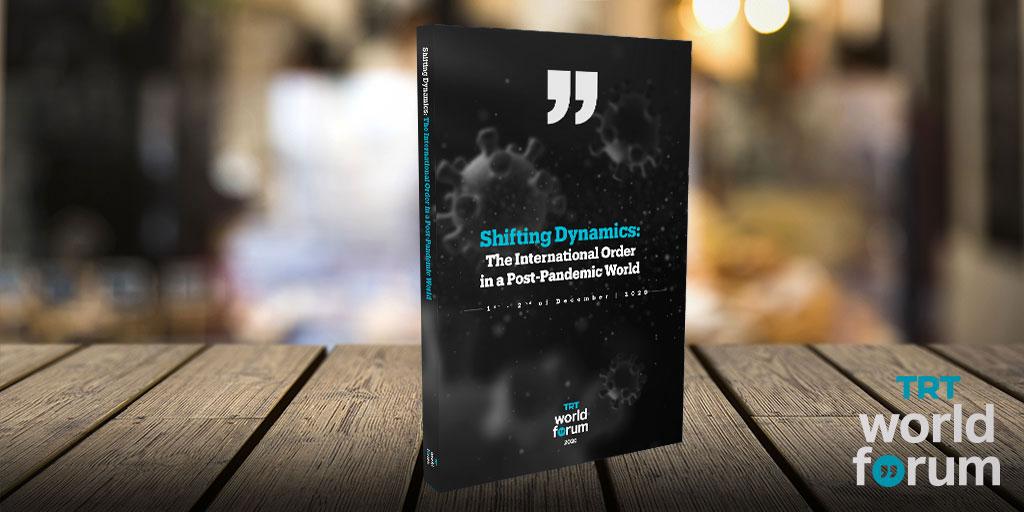
TRT World Forum 2020 Book
In December 2020, TRT World organised its fourth annual TRT Word Forum under the theme “Shifting Dynamics: The International Order in a Post-Pandemic World”. Due to the unprecedented situation caused by the Covid-19 pandemic, TRT World Forum 2020 was held in a digital format. The two-day conference focused on understanding the emergence of a new world order in

The Future of Work and Education: Preparing for a Post-Pandemic World
This session examined the impact of the Covid-19 pandemic on the lives of people around the world, with a focus on work and education. The Covid-19 pandemic has been labelled as the defining global health challenge of our times, but it is more than that: it is also an unprecedented social and economic crisis, the

Politics and Pandemics: Humanitarian Aid in the Time of COVID-19
As the Covid-19 pandemic remains a public health threat in countries around the world, those living in conflict zones and politically unstable environments from Syria and Yemen to Gaza and Lebanon, continue to be among the most vulnerable. While wars may be less frequent than in the past, political and economic instability, failed states and

COVID-19: An Impasse or an Opportunity for a Sustainable Global Order?
The world continues to be faced with a profound crisis due to the Covid-19 pandemic. This extraordinary situation poses a major challenge for governments and multilateral organizations by deepening inequalities between developing and developed economies, giving a boost to nationalist ideologies, and disrupting global supply chains and economic relations. Given this, it can be said

A World without Travel: The Impact of Pandemic-Related Technological Adaptations on the Future of Industry
For years, we have heard about the need to fly less as part of the effort to lessen our environmental impact. Today, we are imagining a world where significantly reduced travel may come to be a permanent fixture. Airlines forced to cease operations as Covid-19 spread across the world have been slow to resume their

New Realities in Foreign Affairs and Interstate Relations after Covid-19
As the world continues to face the Covid-19 pandemic, it has become increasingly clear that certain foundational aspects of world are set to change. While the contours of these changes are still coming into focus a new horizon is slowly beginning to emerge, one that includes the outlines of transformations in, among other things, how

America vs China: Trade Wars, Covid-19 and Future Economic Relations
The two largest economies in the world, the US and China, seem to be on a collision course that has been accelerated by the Covid-19 crisis. Since President Trump came to office, the two superpowers have upped the ante in their economic confrontation. Tensions rose with President Trump’s ambitious plan to close his country’s massive

What’s Next?: Understanding Health Threats in Times of Hyper-Globalisation
The global pandemic has made the world acutely aware of the strengths and weaknesses of public health care systems around the world. Some governments have been better prepared than others, quicker to respond, have taken the threat more seriously, and have also helped less well-prepared states. As we come closer to the winter months there

Multipolarity in the Age of Covid-19: The Future of Global Solidarity
As the Covid-19 pandemic spread across the world, much of the world went into retreat and resorted to isolationism. Nationalism, already on the rise in much of the world, was amplified and mechanisms of regional and international solidarity and cooperation appeared unable to deal with the crisis. Today, the credibility of many multilateral institutions is

Infodemic: How the International Media Impacted the Pandemic
This session examines the role of the international media in the unprecedented context of the 2020 novel coronavirus pandemic. As countries rushed to implement protective measures against the spread of the virus, it quickly became clear that Covid-19 had become a part of everyday life all around the world. Initial international media coverage of the
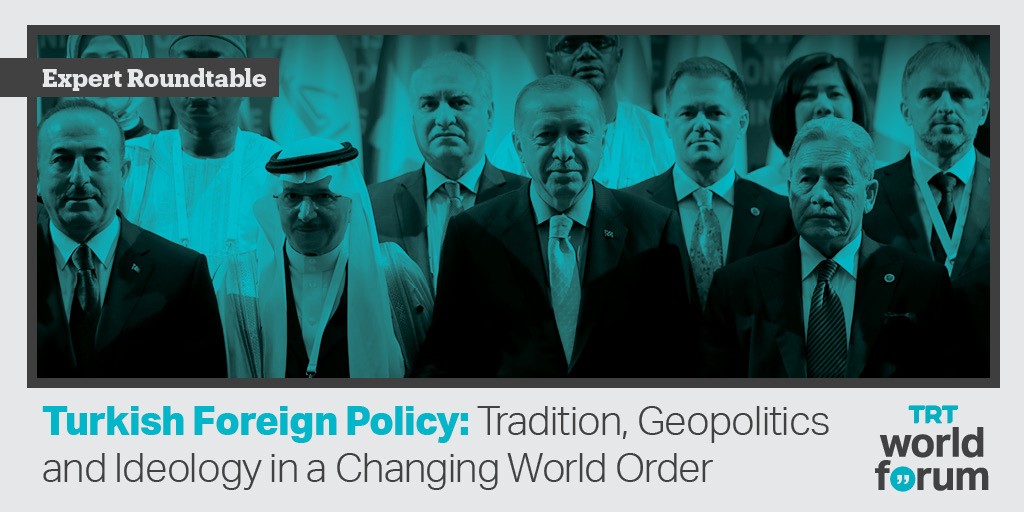
Turkish Foreign Policy: Tradition, Geopolitics and Ideology in a Changing World Order
The international system is in the process of a profound transformation as the US-led world order continues to be challenged by emerging powers. The unipolar moment captured by the US after the Cold War has been steadily eroding as the distribution of power across the globe has started tilting in favour of multipolarity. The epicentre
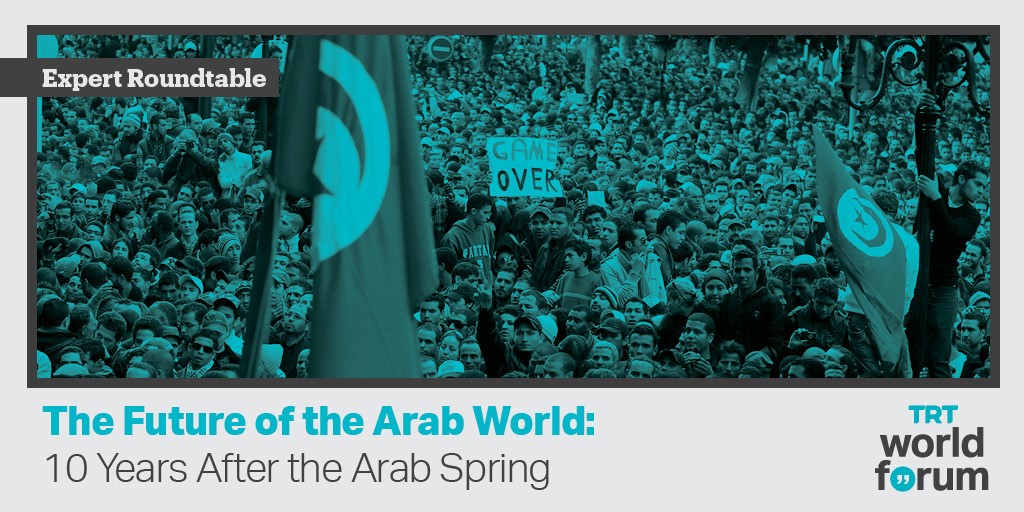
The Future of the Arab World: 10 years after the Arab Spring
As the Middle East approaches 10 years since the uprisings that marked the start of the Arab Spring, the tumultuous decade has left many unanswered questions as to the future of Arab states and societies. Beyond the headline-grabbing uprisings of 2011 which saw protests spread across the region in what many observers and political actors
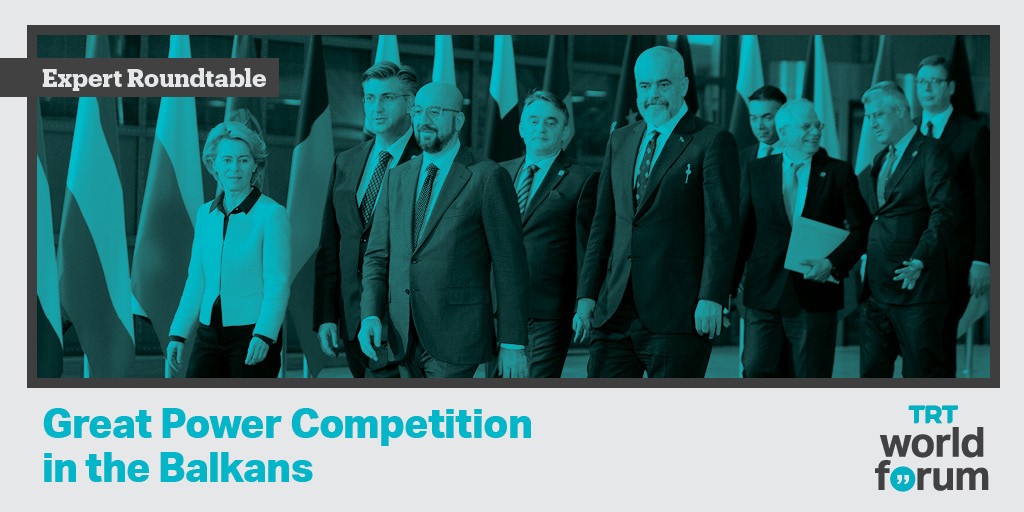
Great Power Competition in the Balkans
The world is once again entering into a strategic environment defined by multipolarity. China and Russia’s rise as global actors and the growing rift between the United States and Europe indicate that the future of international politics will be marked, once again, by competition between great powers. With its strategic geopolitical location, the Balkans has
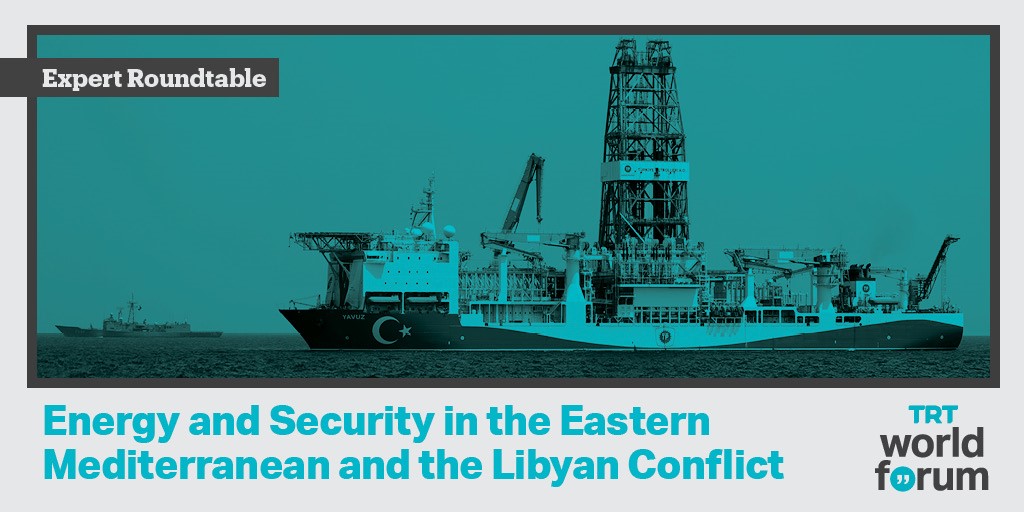
Energy and Security in the Eastern Mediterranean and the Libyan Conflict
The Eastern Mediterranean’s hydrocarbon reserves could transform the region into one of the world’s most important sources of natural gas over the coming decades. These vast deposits of natural gas have the potential in see billions of dollars deposited into the treasuries of regional states. As a result, tensions are rising in the Eastern Mediterranean
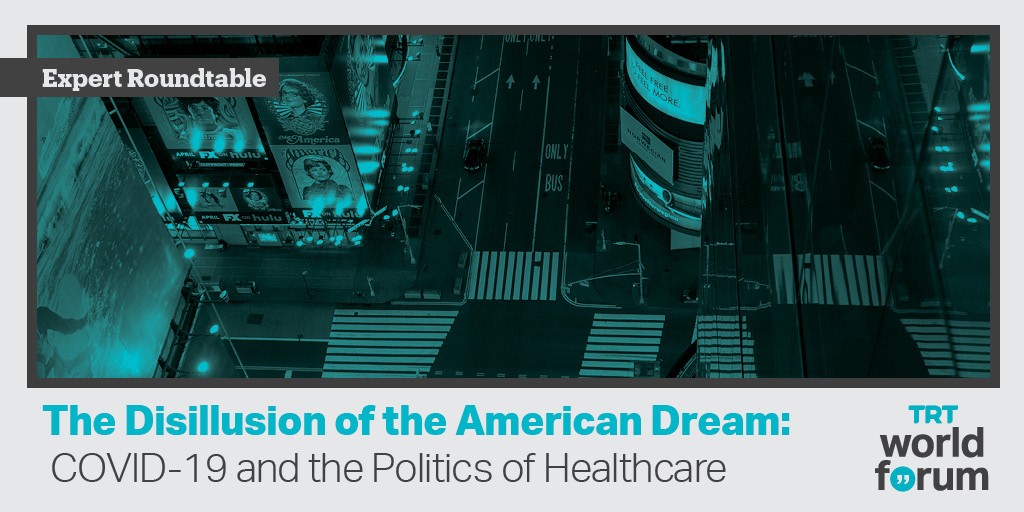
The Disillusion of the American Dream: Covid-19 and the Politics of Healthcare
The Covid-19 pandemic has exposed the fragilities of health care systems across the world. This has particularly been the case in a number of wealthy Western countries including France, Italy Spain, and the United States, one of the hardest hit countries in the world. While many of these countries were believed to have some of

War and Disease: Living with Covid-19 in Syria and Yemen
In war-ravaged Syria, already grappling with an economy in tatters, persistent instability and a conflict that, as of yet, has shown no signs at moving towards a viable solution, the Covid-19 pandemic has pushed what remains of the country’s healthcare infrastructure to the brink. After nearly a decade of war, Syria’s healthcare infrastructure has been

War and Peace: The Fate of the Azerbaijan-Armenia Conflict
The recent military clashes in the occupied region of Nagorno-Karabakh have increased regional tensions and raised the possibility of a full-scale war. The ceasefire agreement signed almost three decades ago and the mediation process led by the OSCE Minsk Group has failed to deliver sustainable peace. The Armenian attack against Azerbaijan’s Tovuz province in mid-July

The Israeli-Palestinian Conflict and Israel’s Engagement with Arab States
In August, US President Donald Trump announced an agreement between the United Arab Emirates (UAE) and Israel to fully normalise relations in exchange for Israel’s suspension of plans to annex the occupied West Bank. This “normalisation deal” expanded to include Bahrain, with many expecting other Arab and Muslim-majority countries to eventually follow suit. While it
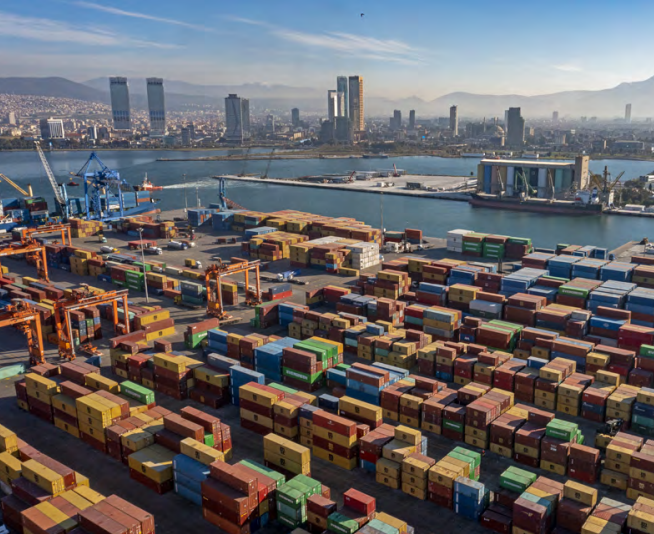
The Future is Free – Only if Secure – Trade: Causes and Effects
As the world enters a new era, economic and political relations between countries are changing. The global economic order will also have a share in this change. With that, geopolitics now plays a more essential role in the international economic order, and international trade practices specifically. Countries relate more diverse issues with national security and
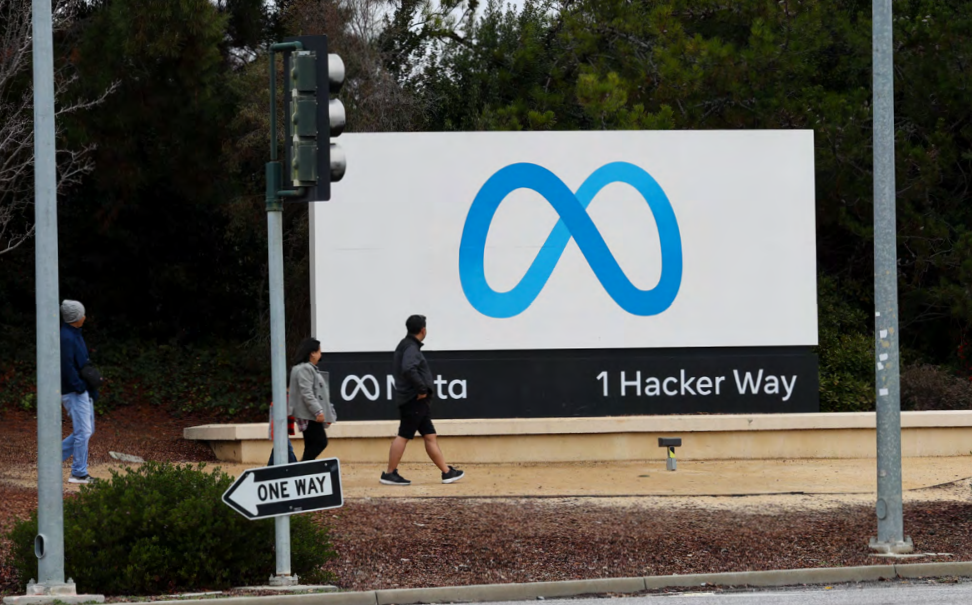
Is 2023 Annus Horribilis for Tech & Media?
Many pointers indicate that 2023 will be a tough year for the tech and media sectors. Since the start of the year, 297 tech companies furloughed nearly 95,000 workers and the big tech players also known as GAFAM (Google, Apple, Facebook, Amazon, and Microsoft) embarked on an austerity drive cutting costs at every corner. This
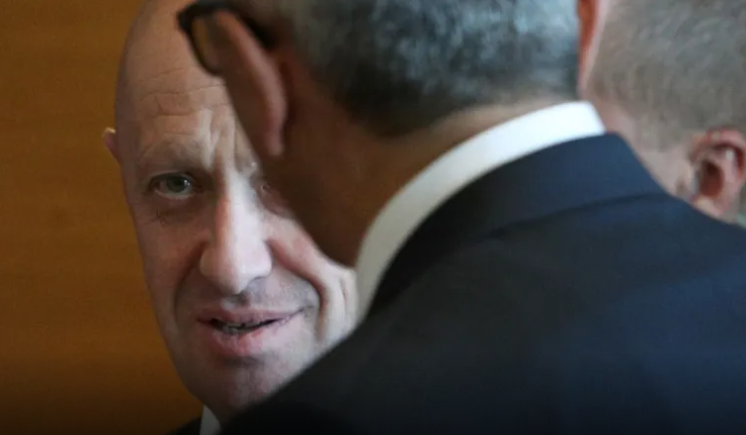
The Rise of Wagner in Russian Politics
Private military companies (PMCs) have carved out a niche for them in warfare. Some governments resort to them to avoid higher political and military costs. PMCs in the US and Europe offer services such as supporting the military with logistics, safeguarding convoys, securing facilities, and training personnel. (Foley & Kaunert, 2022, pp. 179-180). They also
